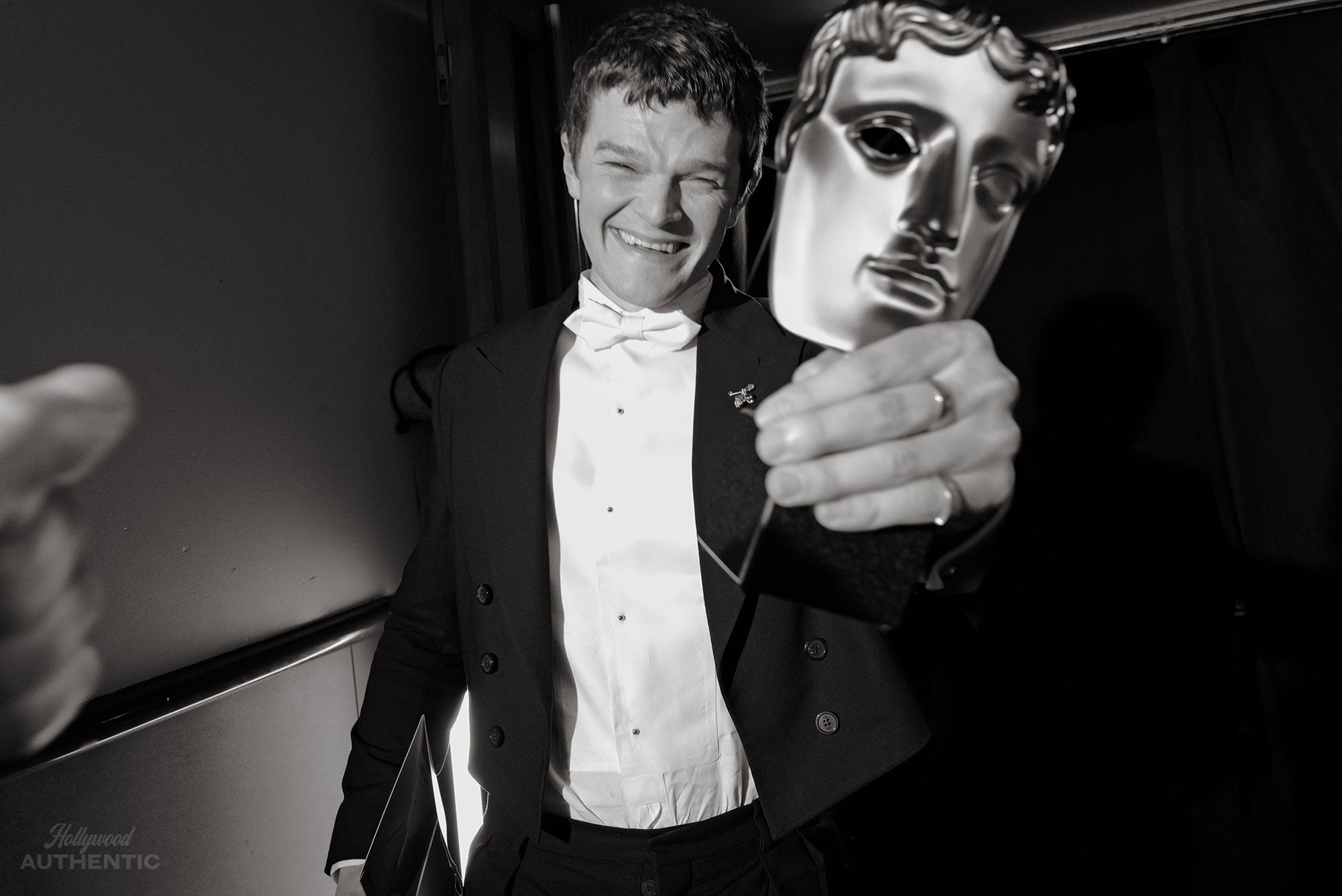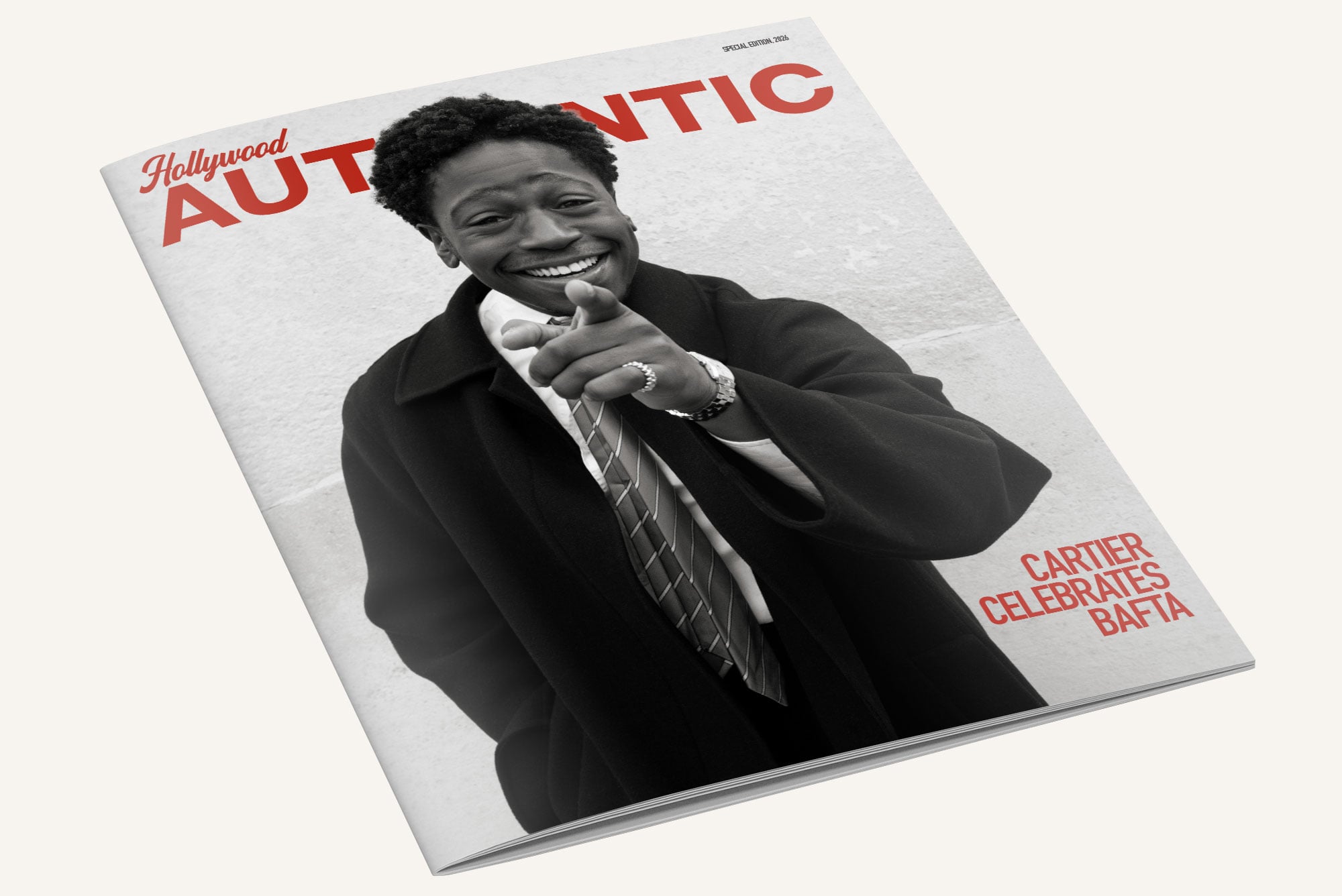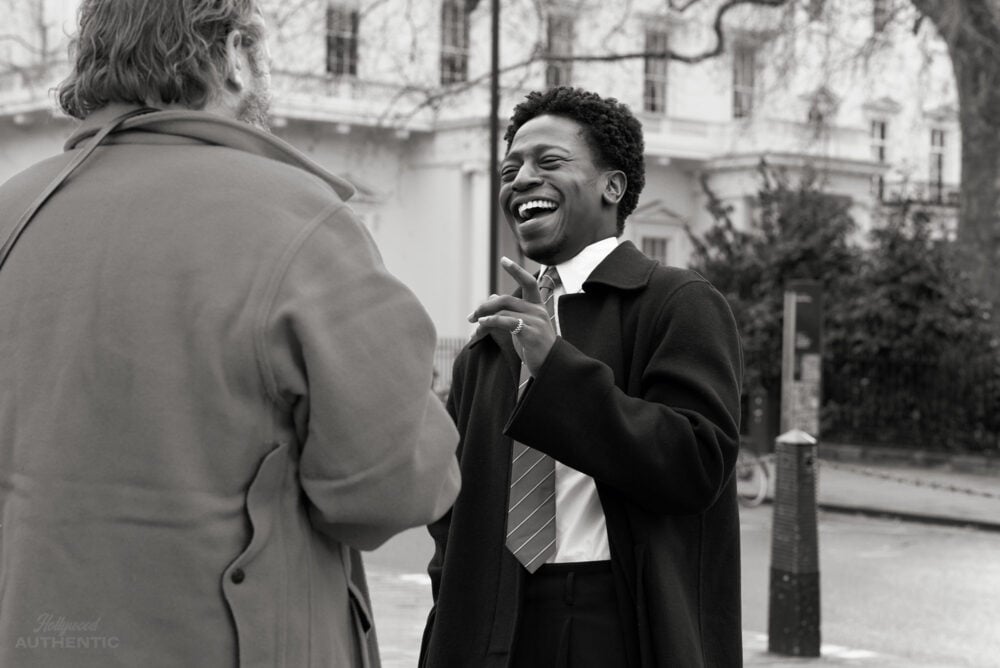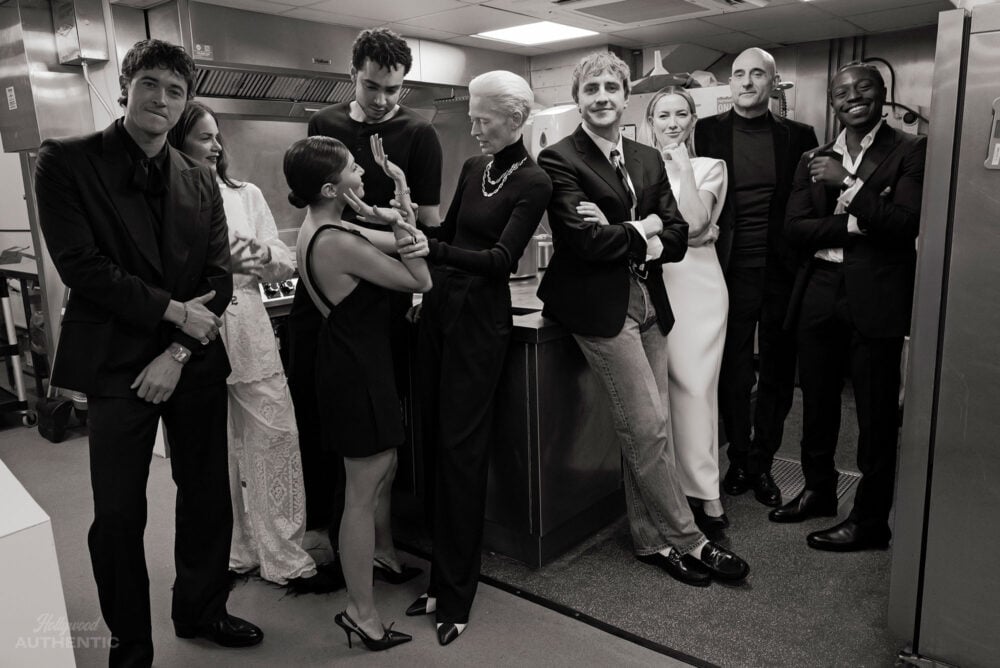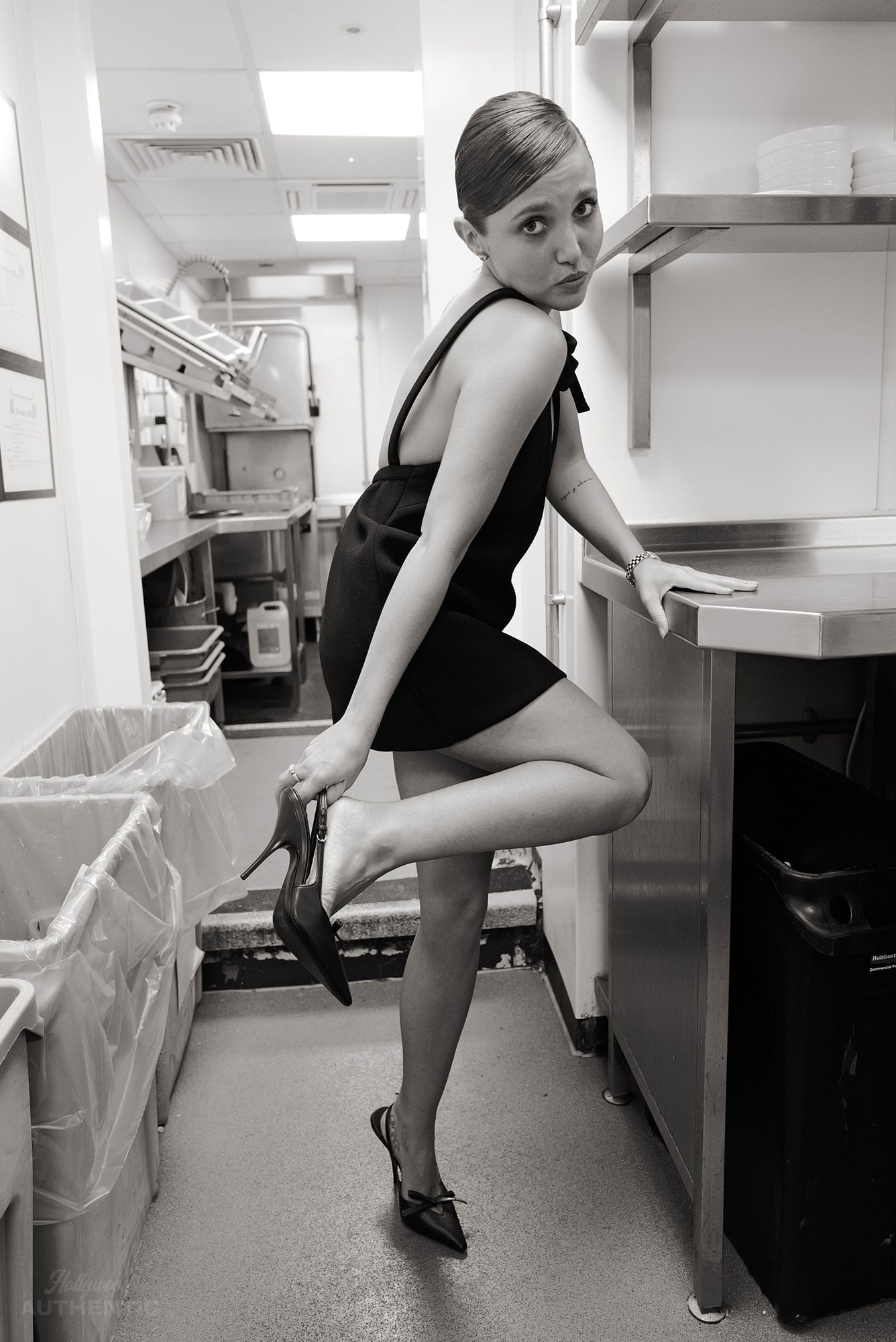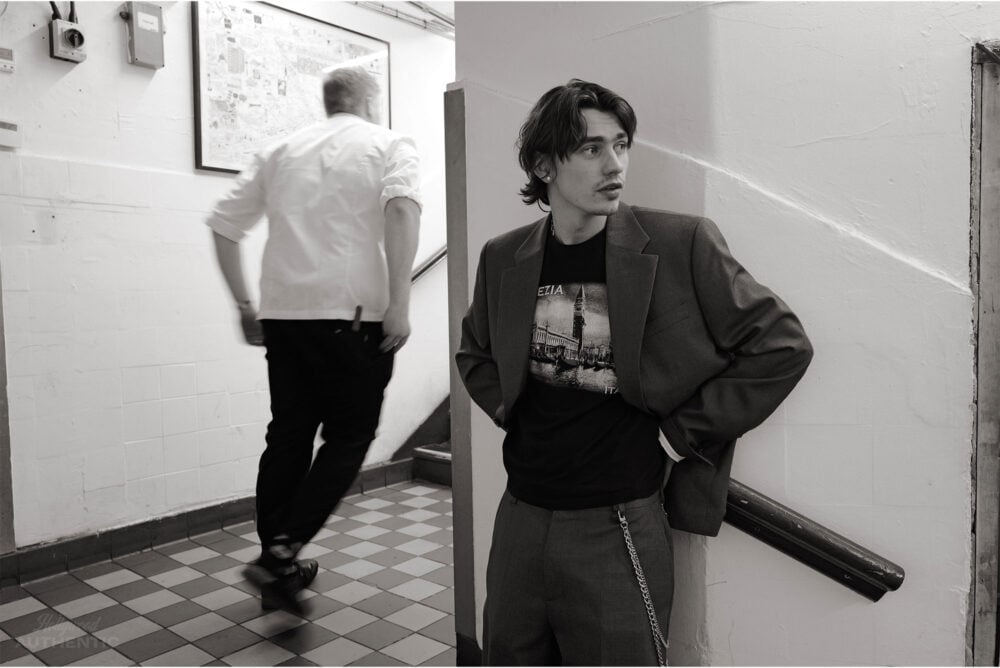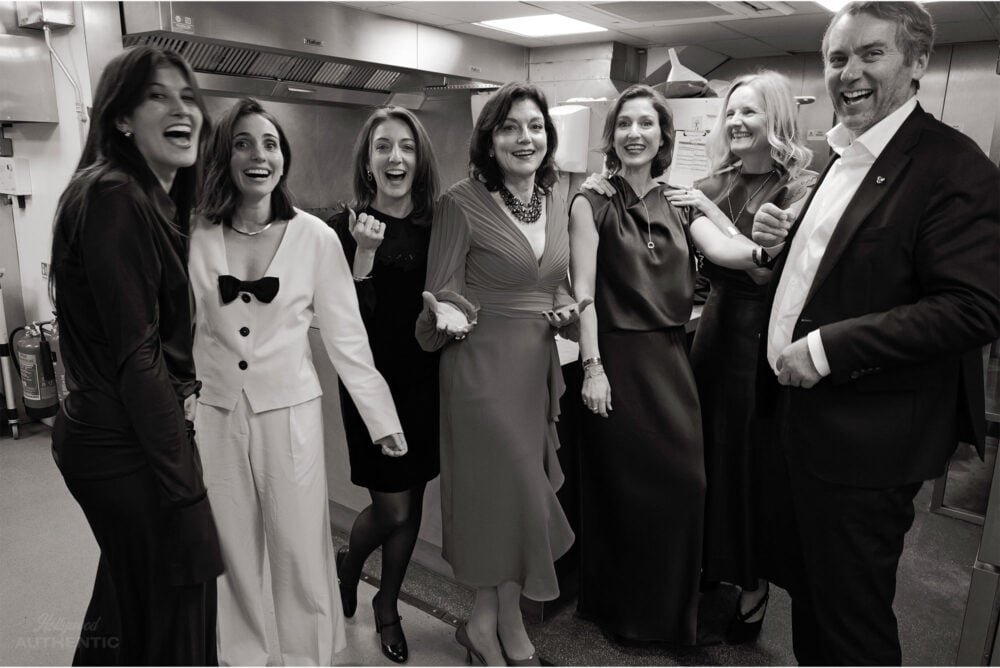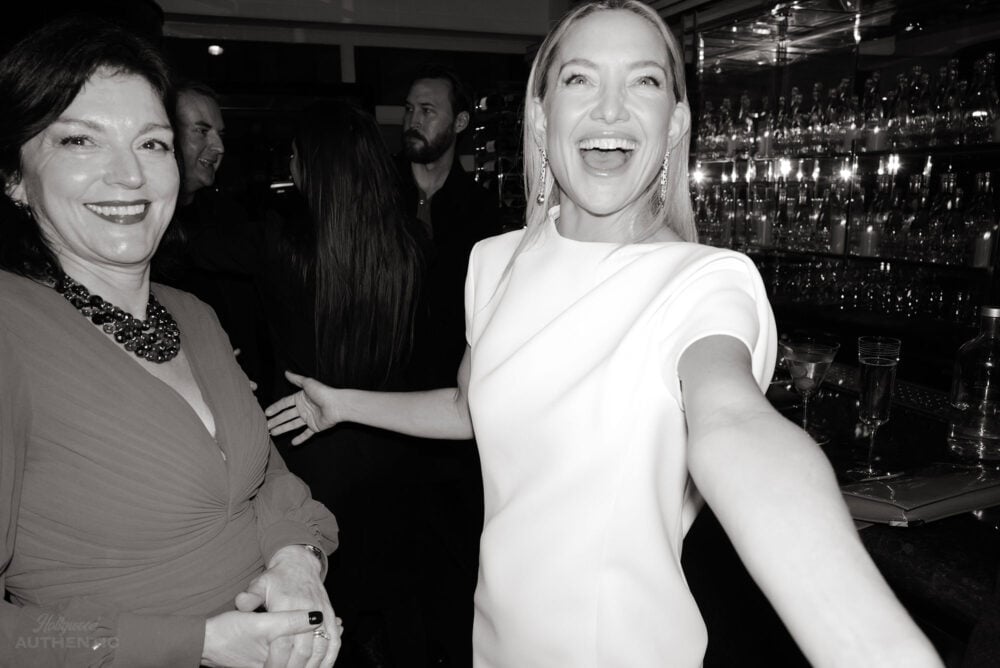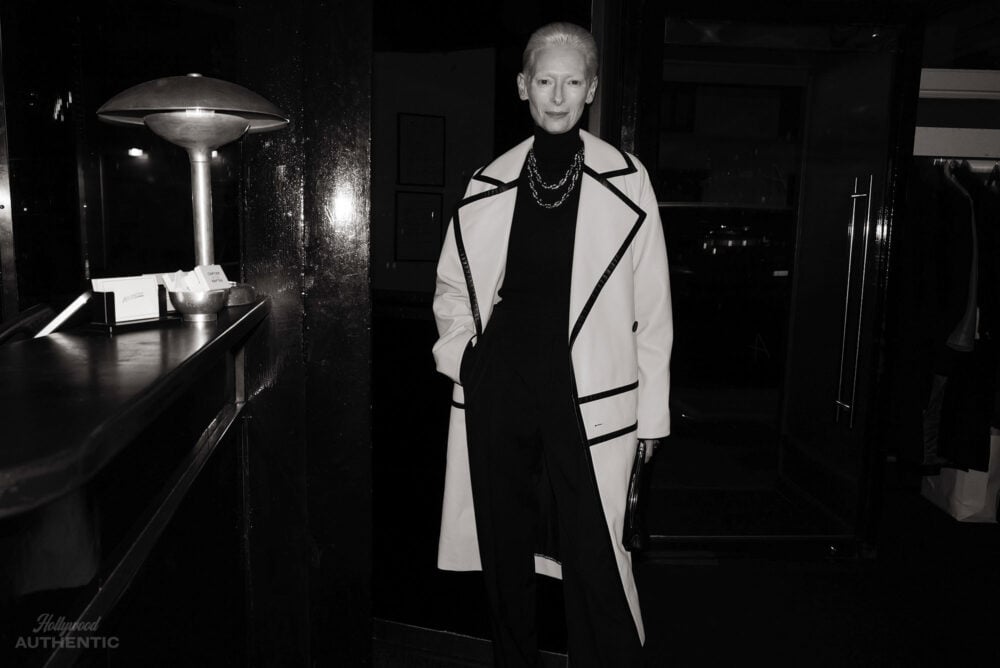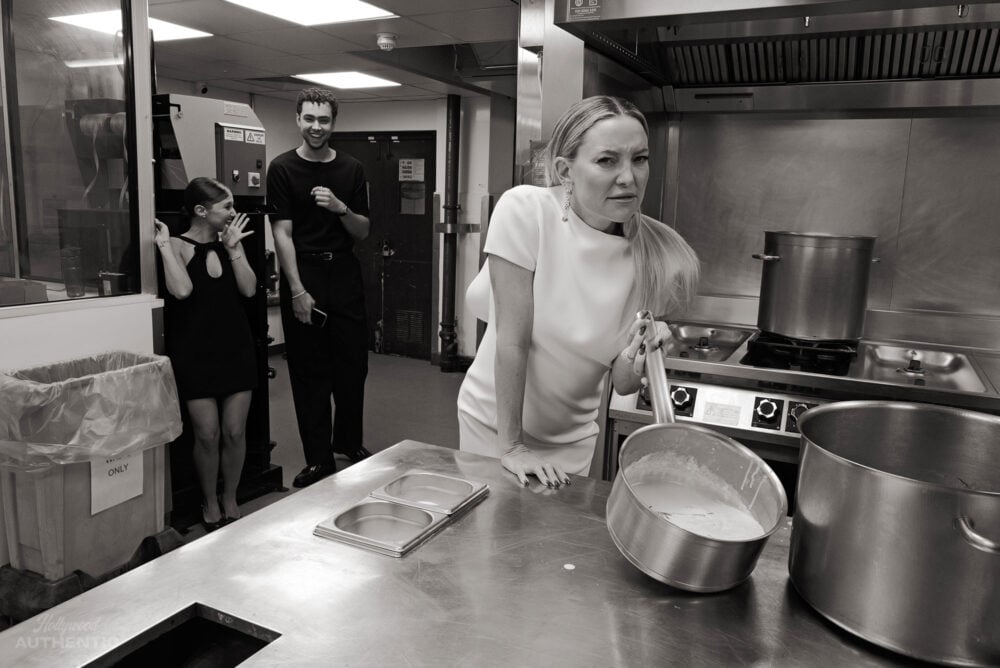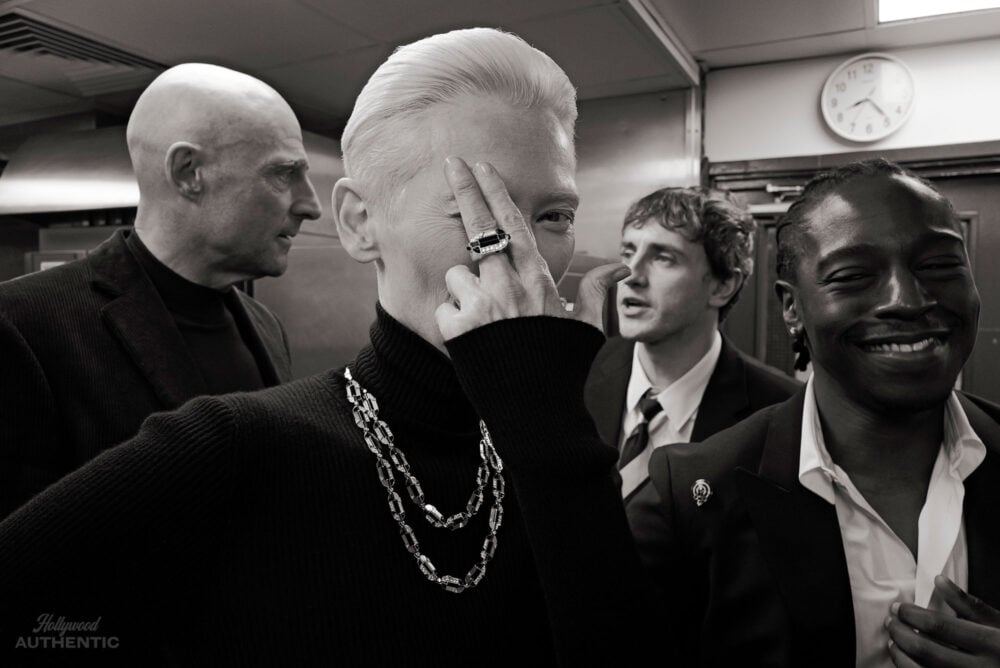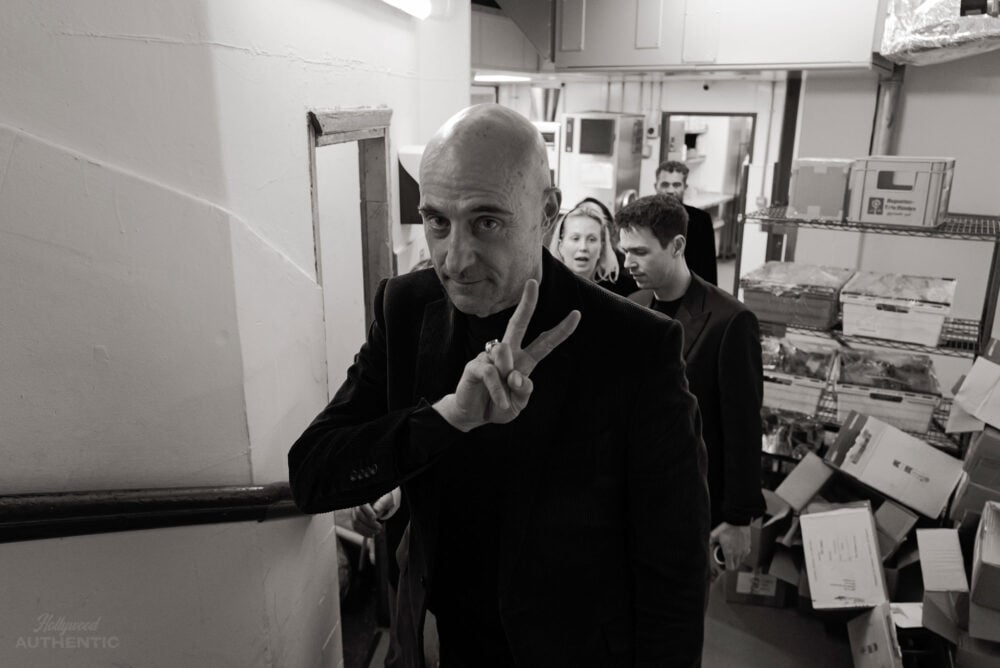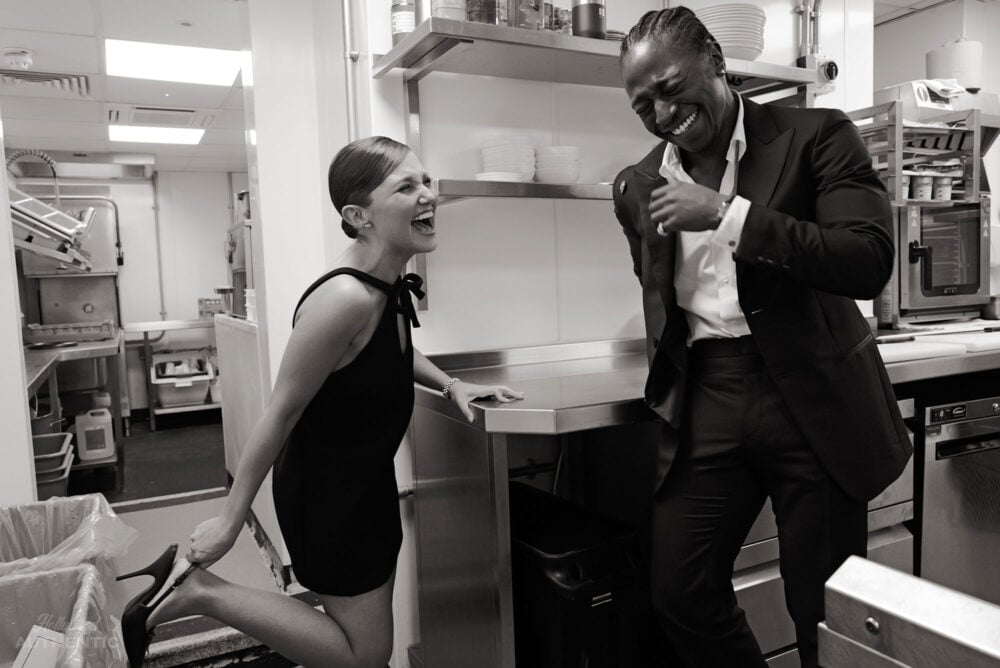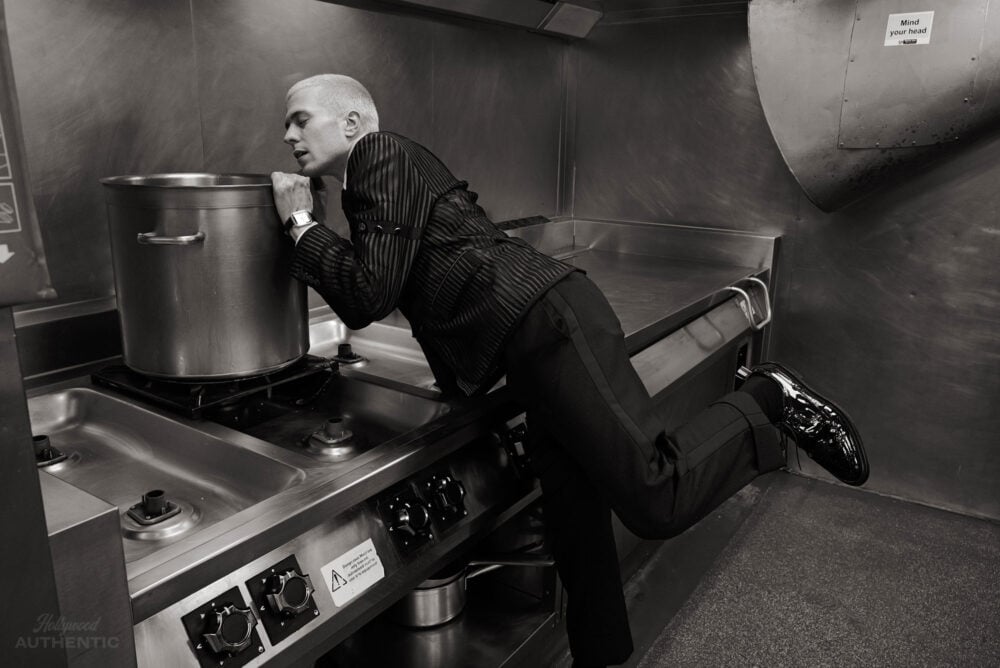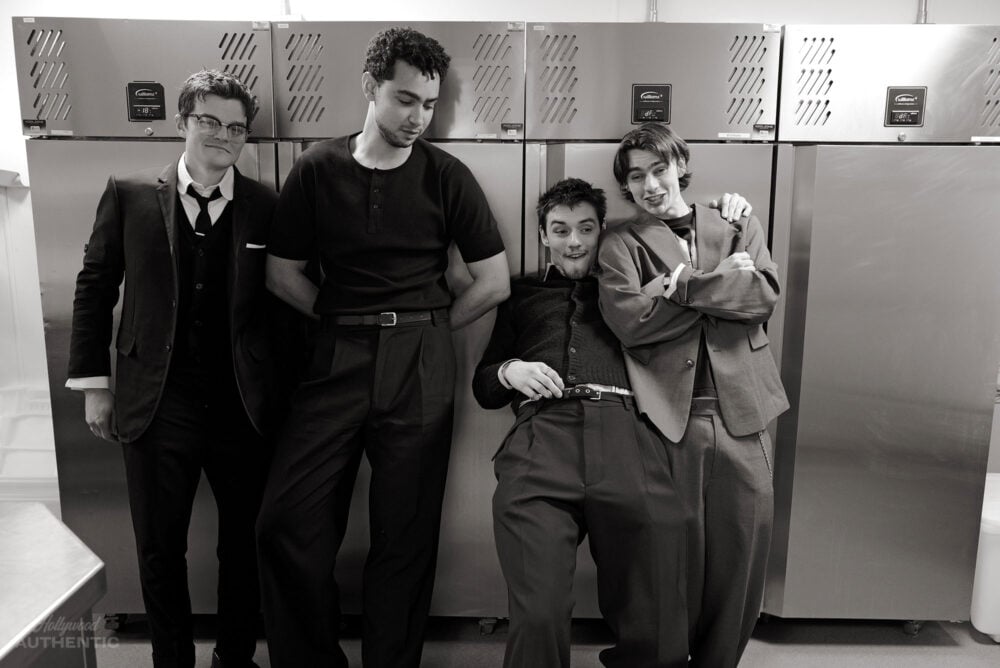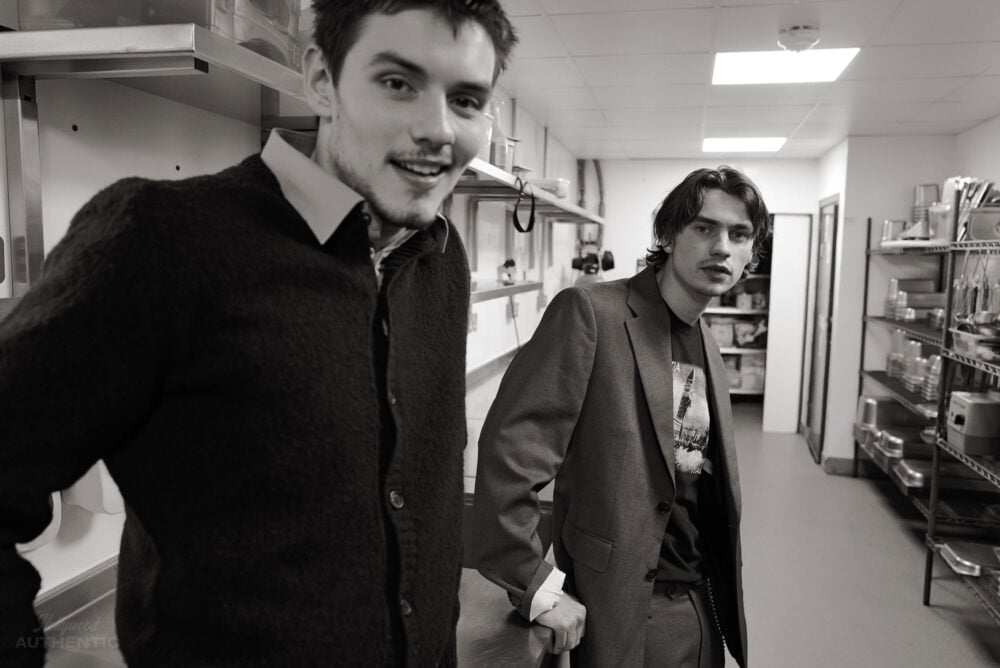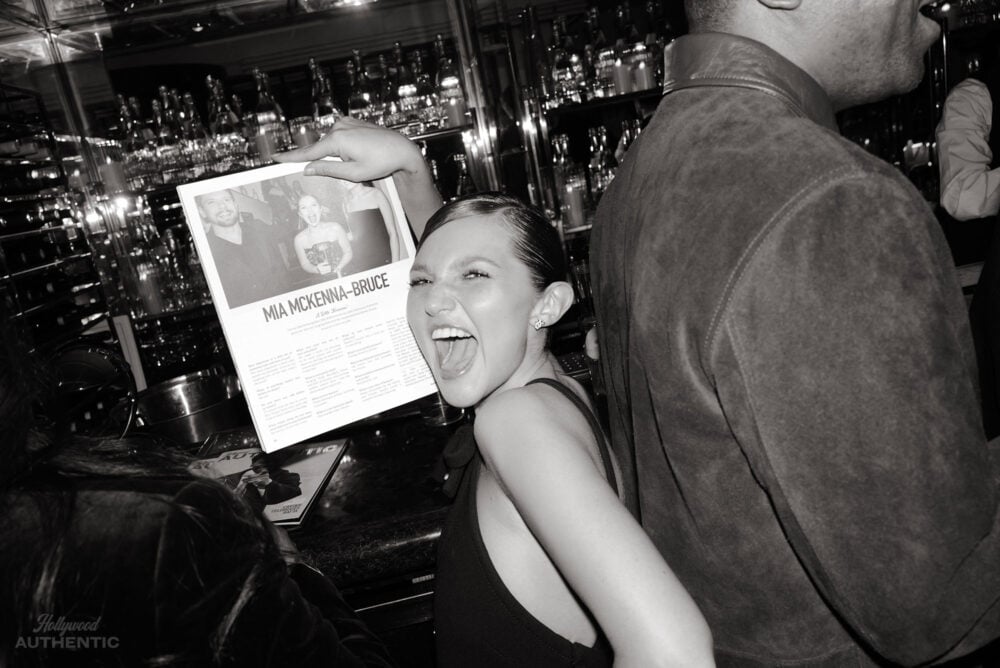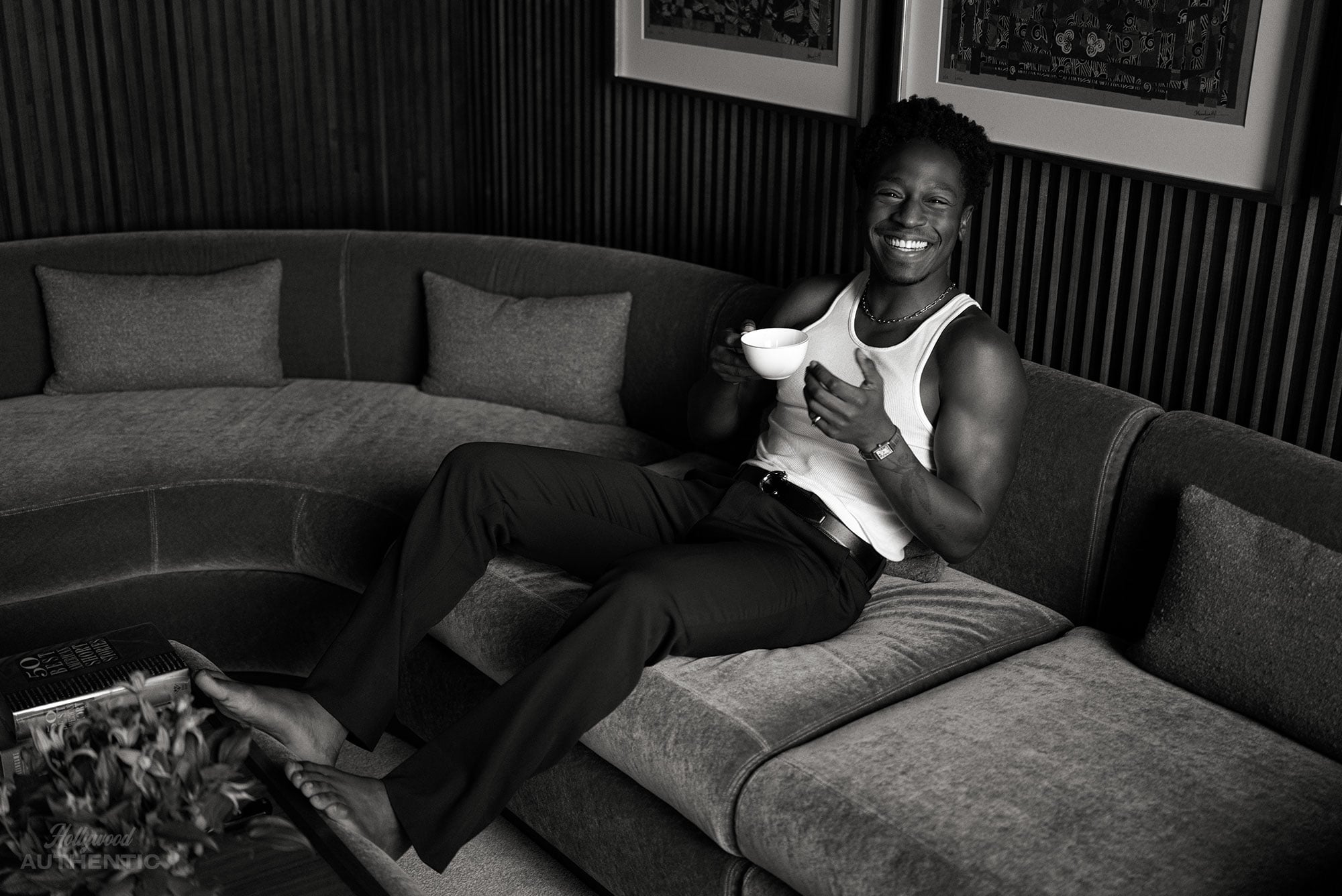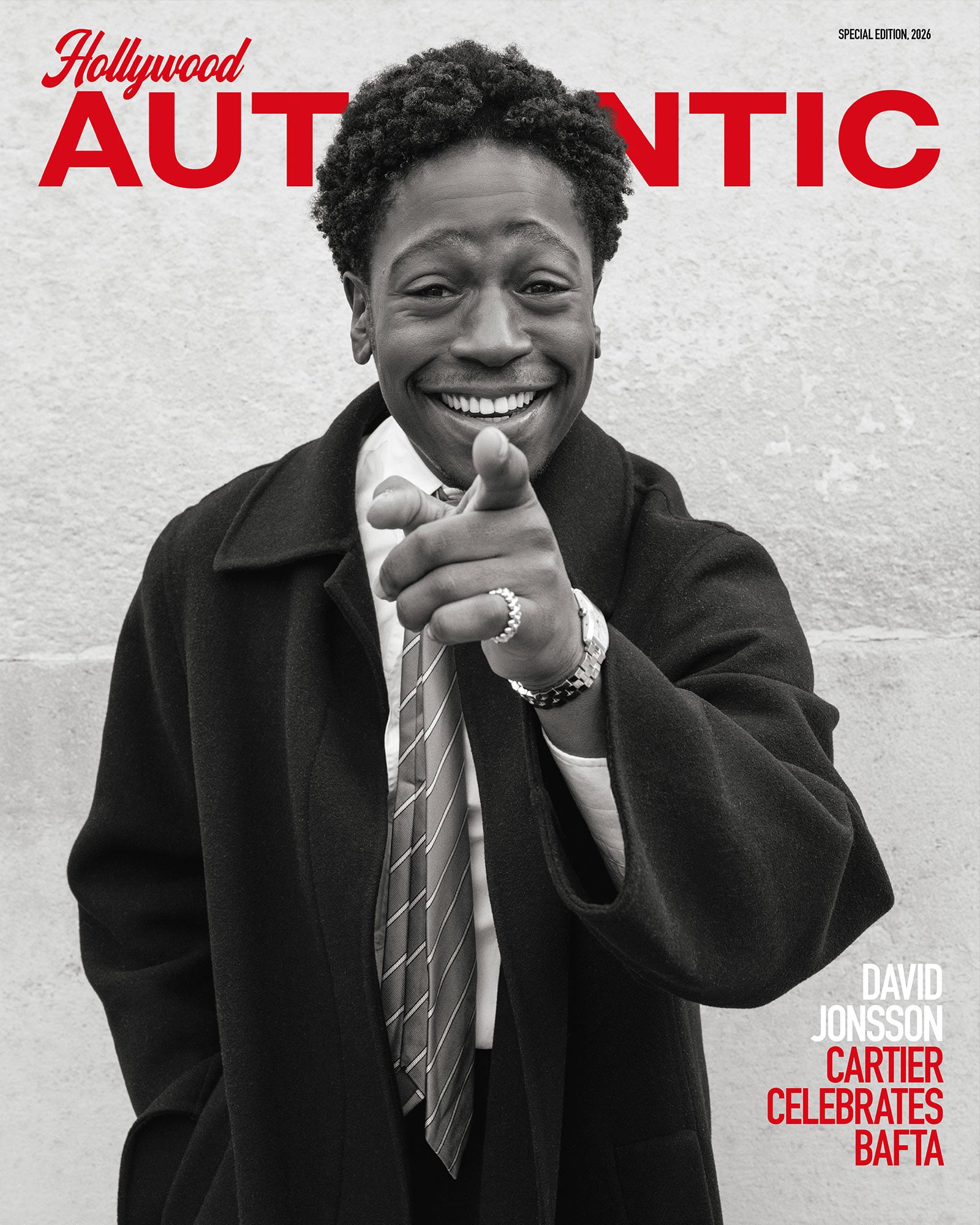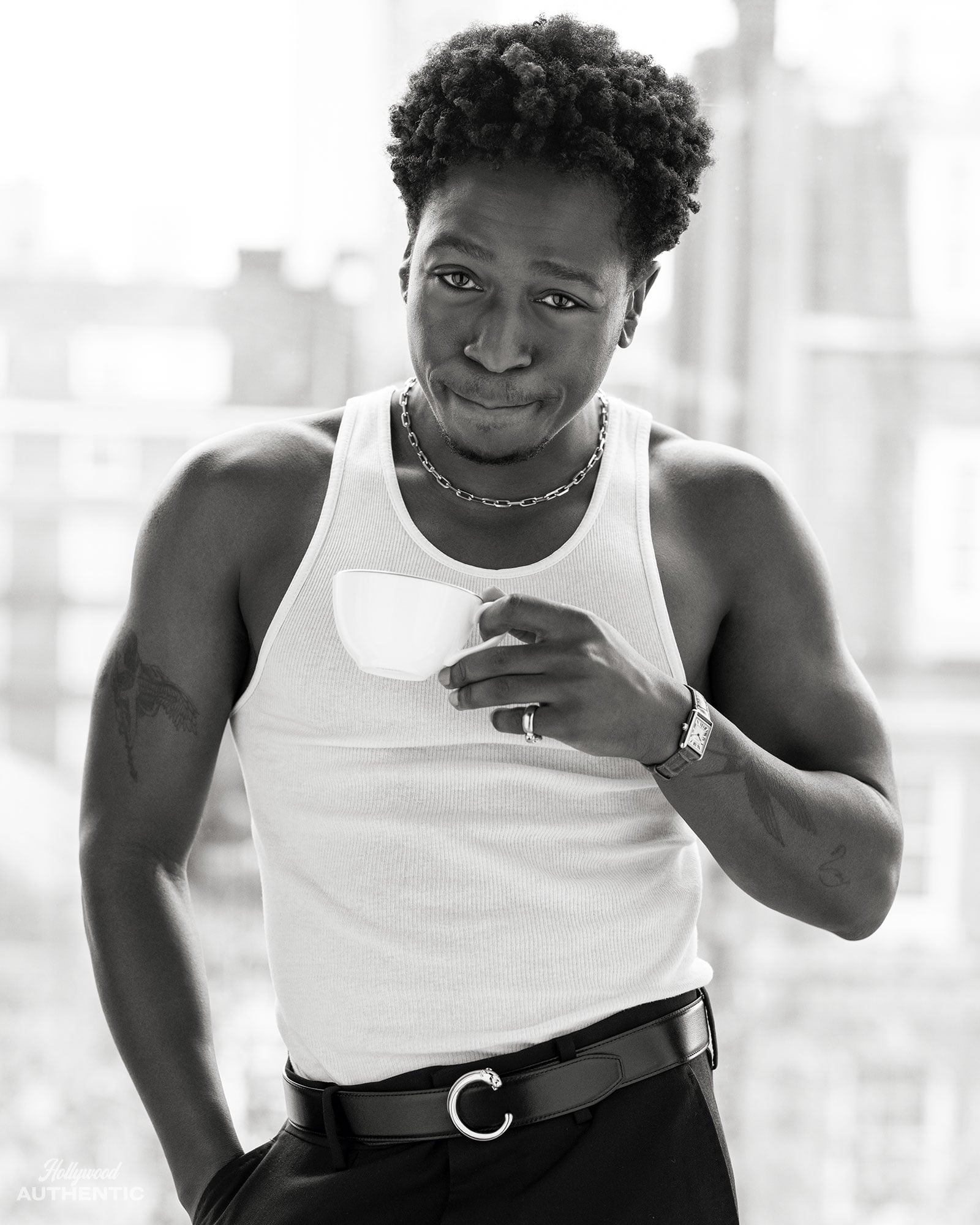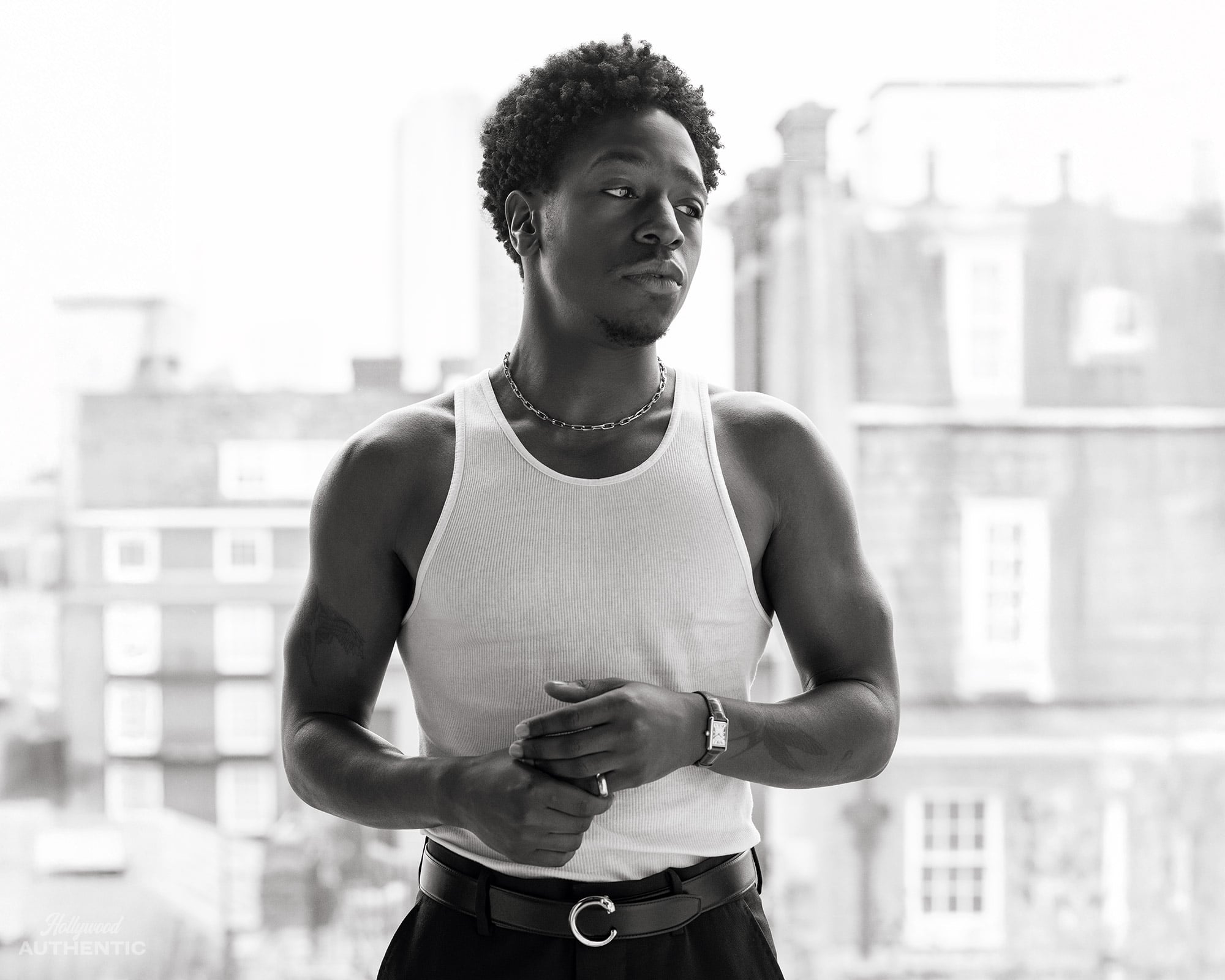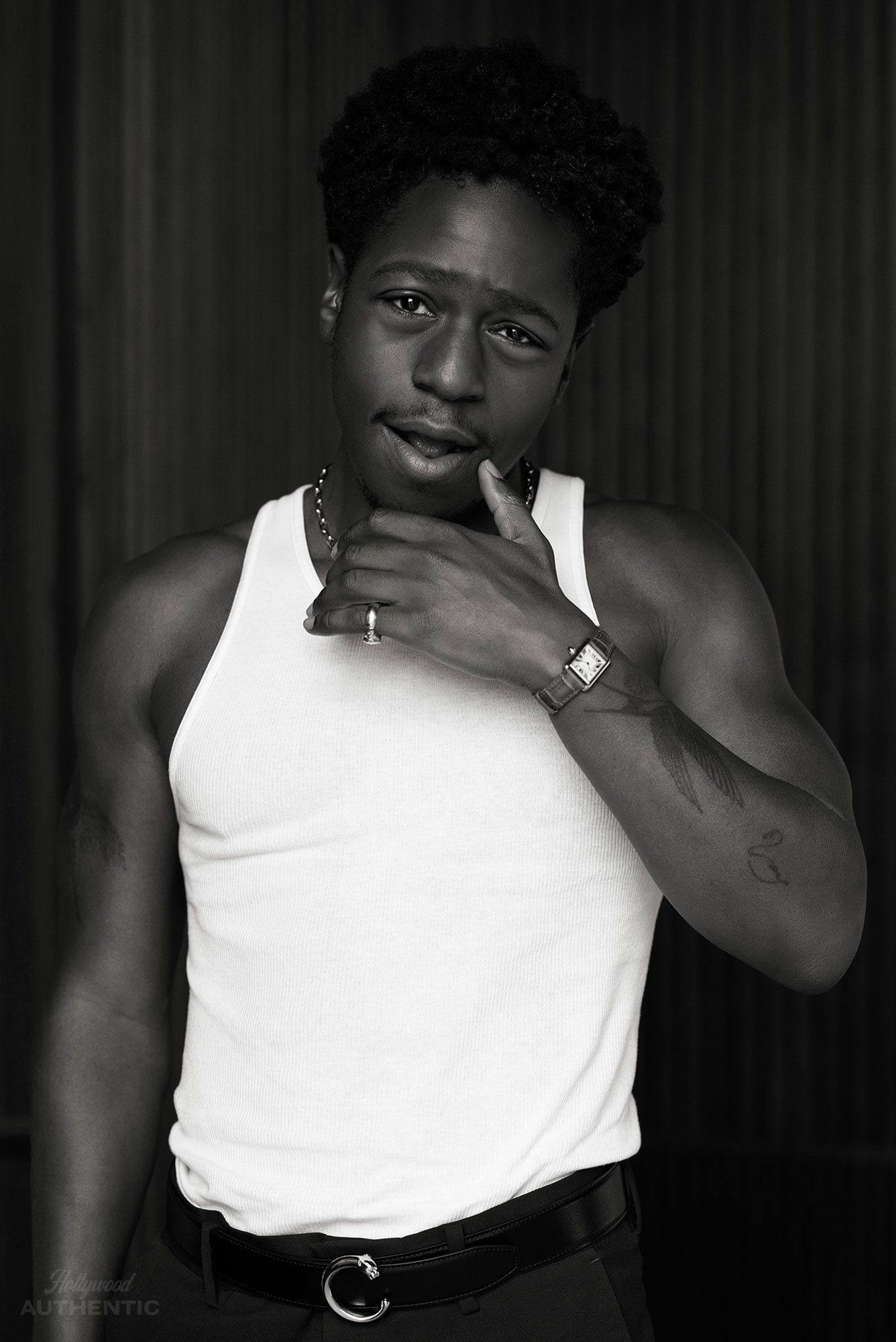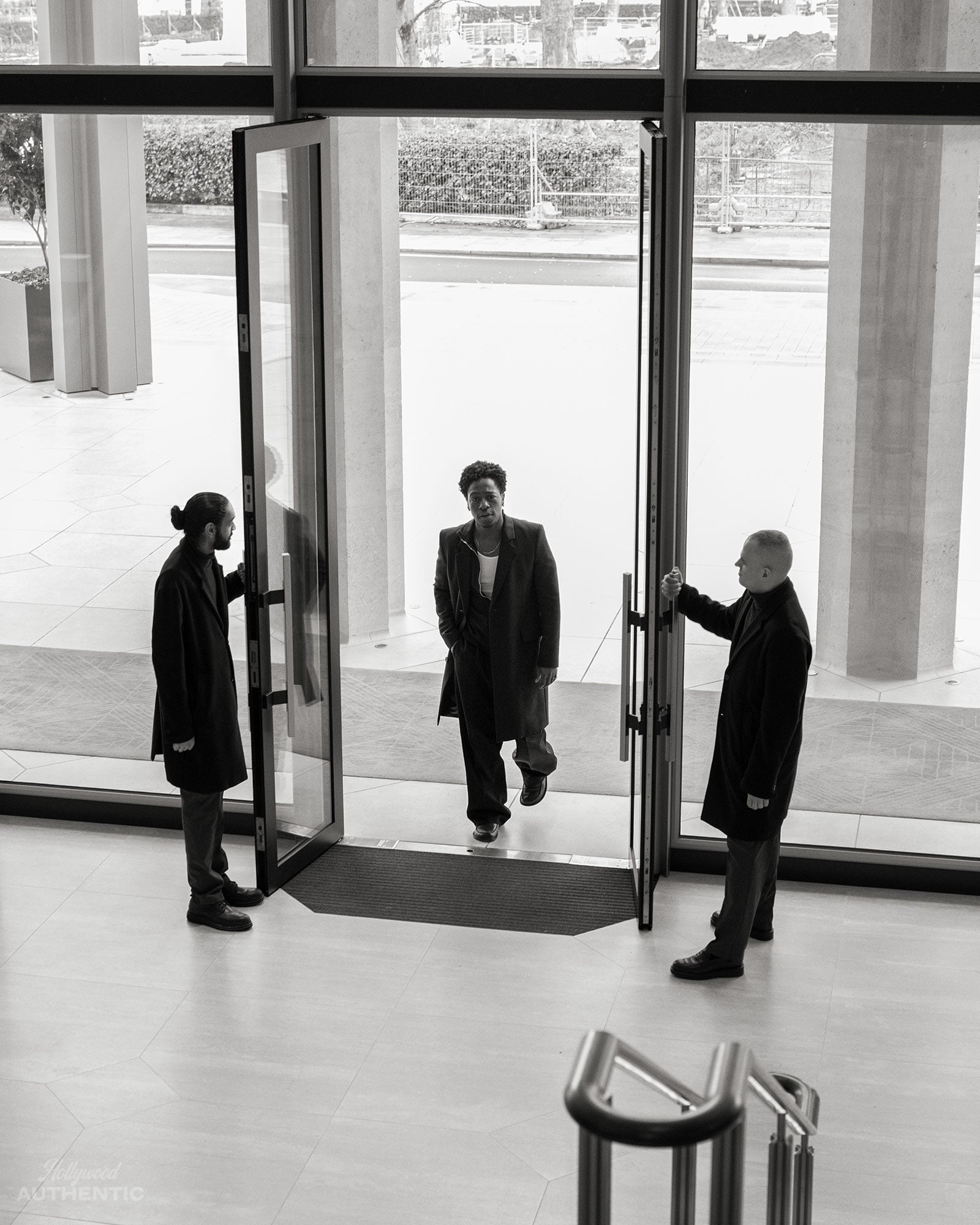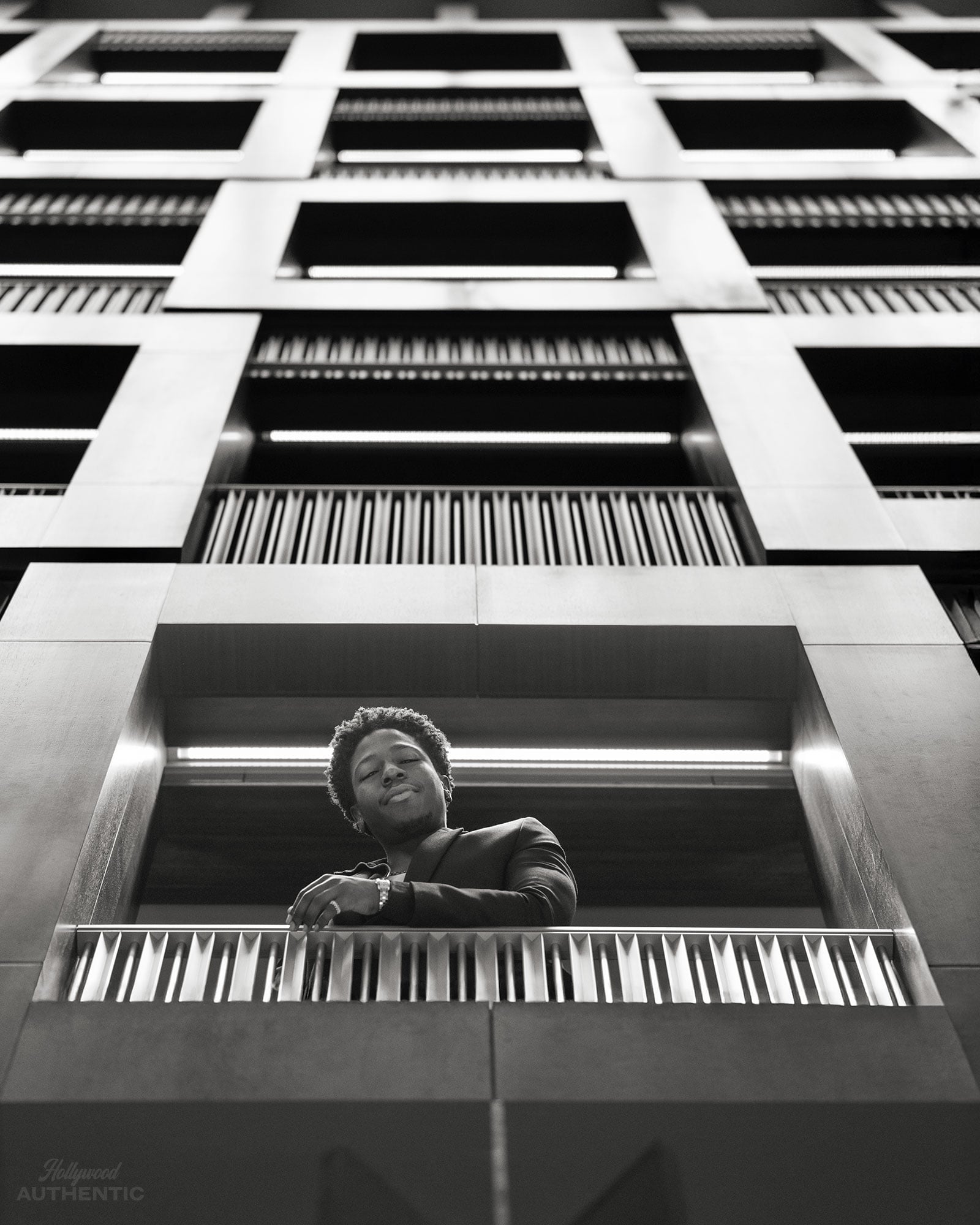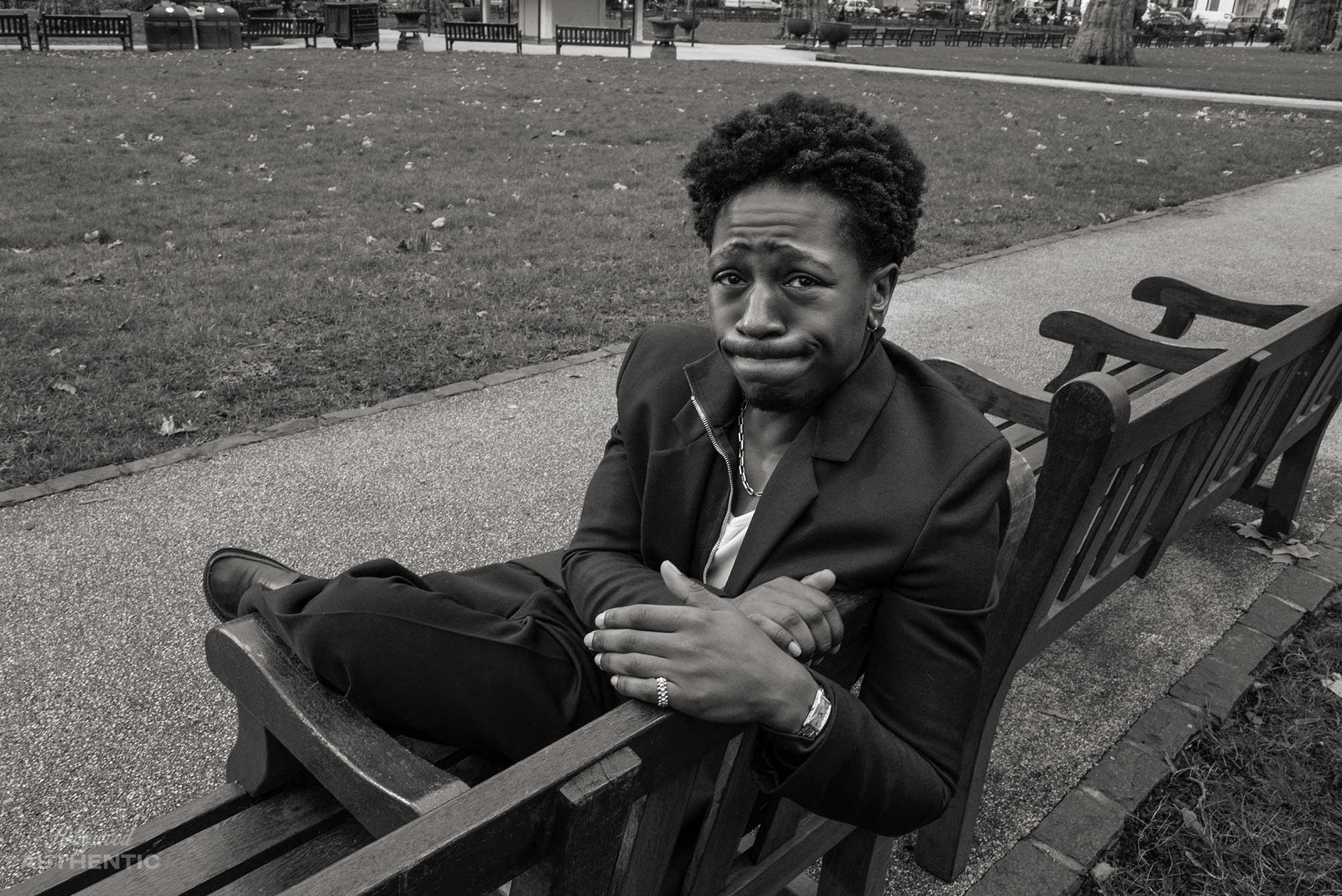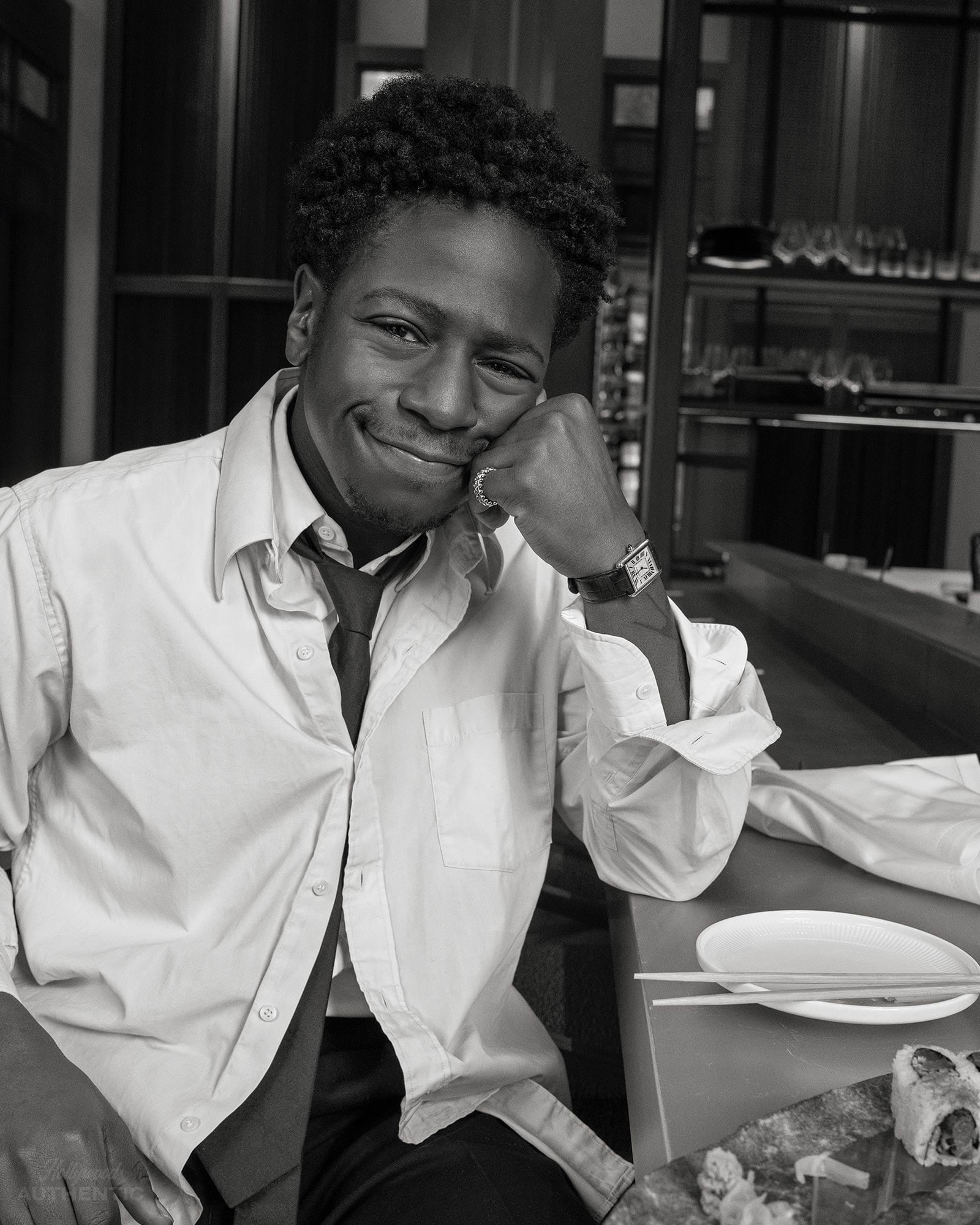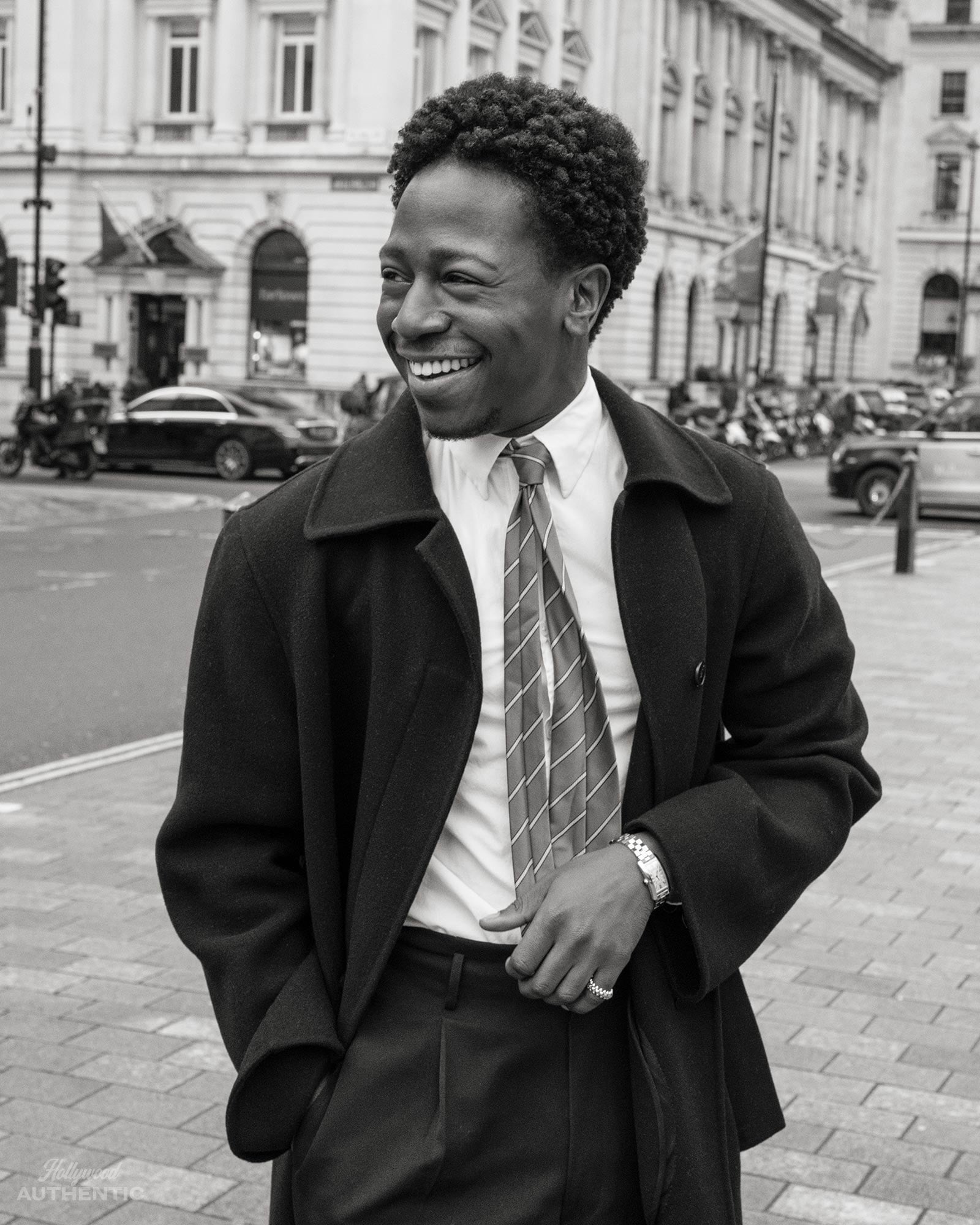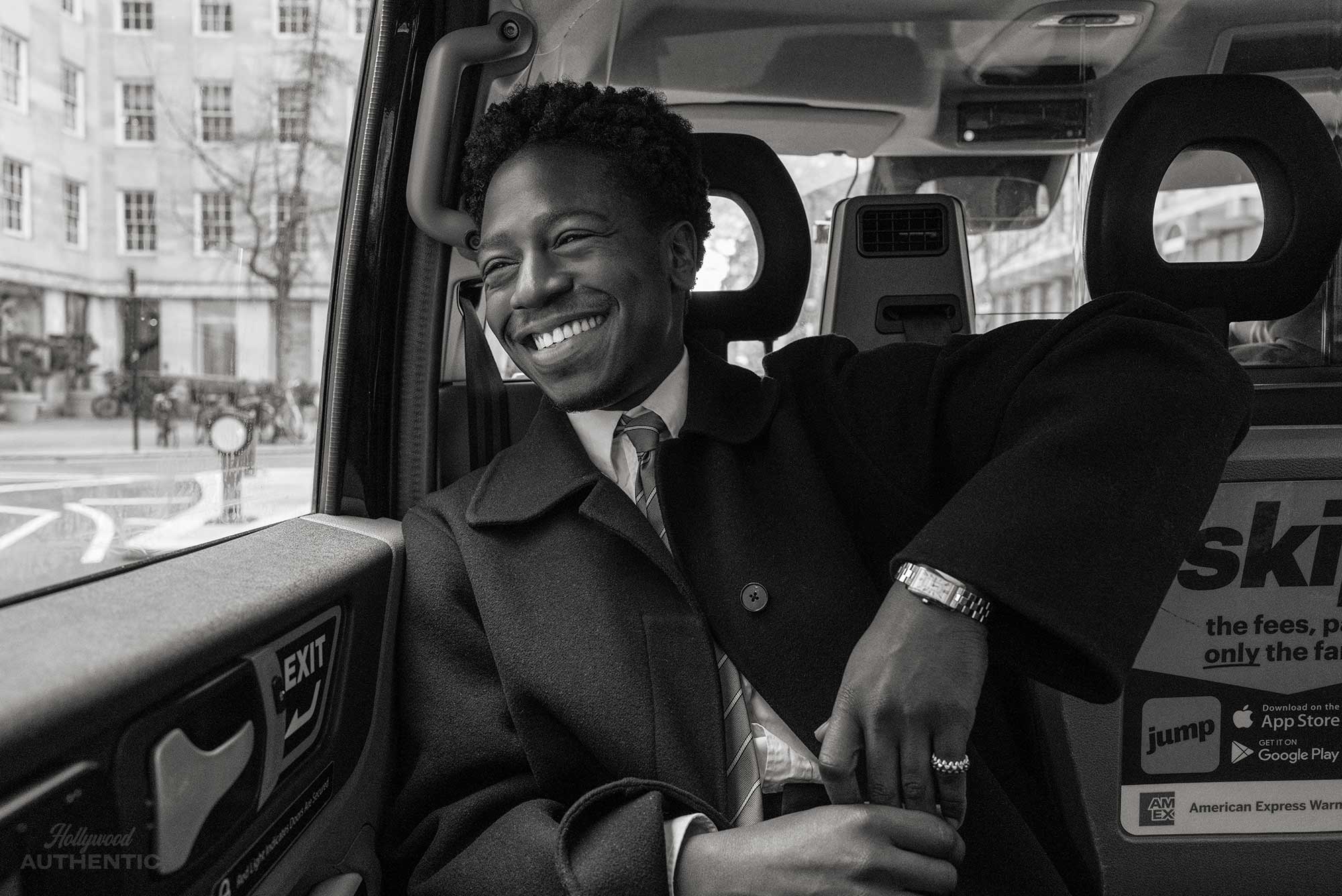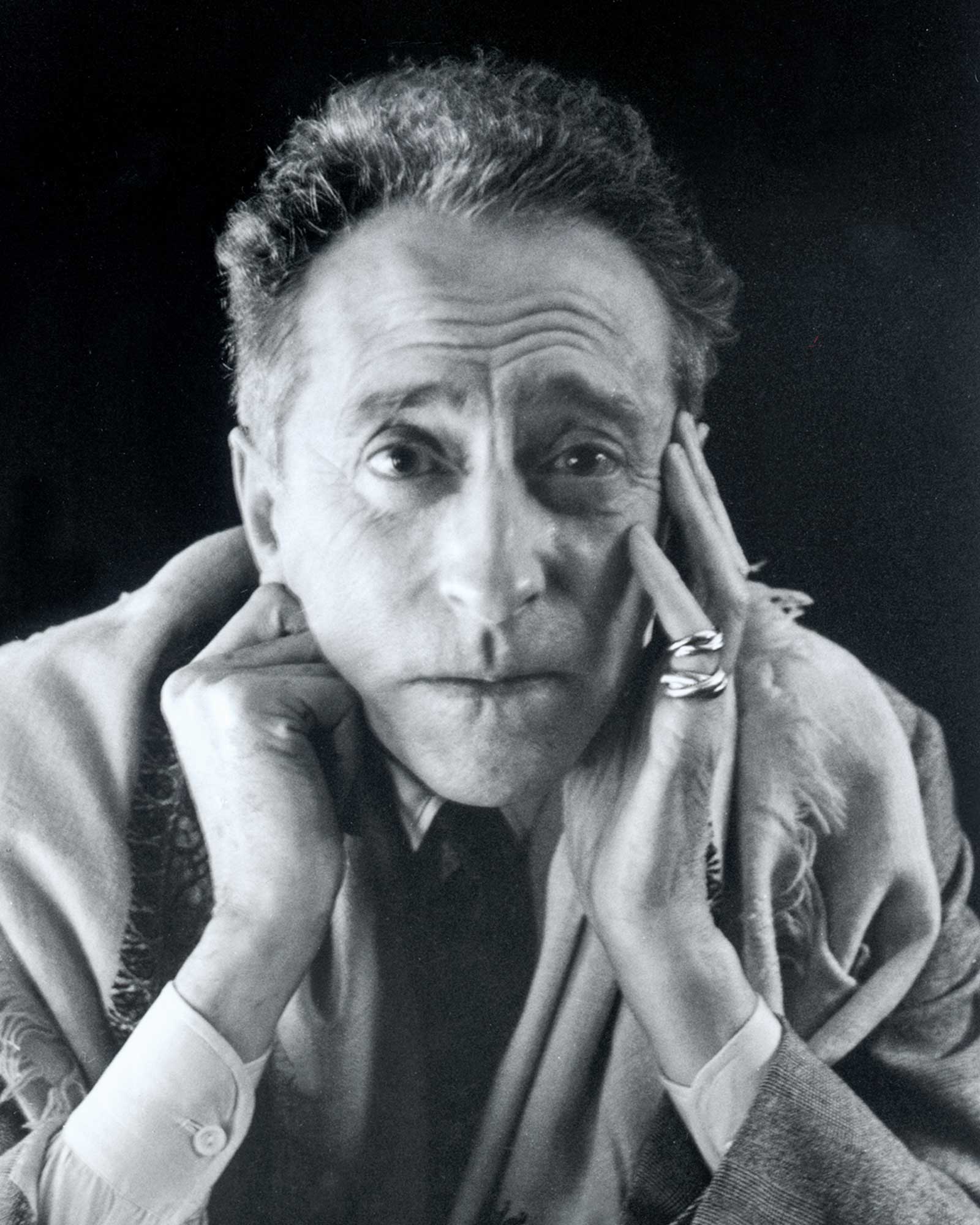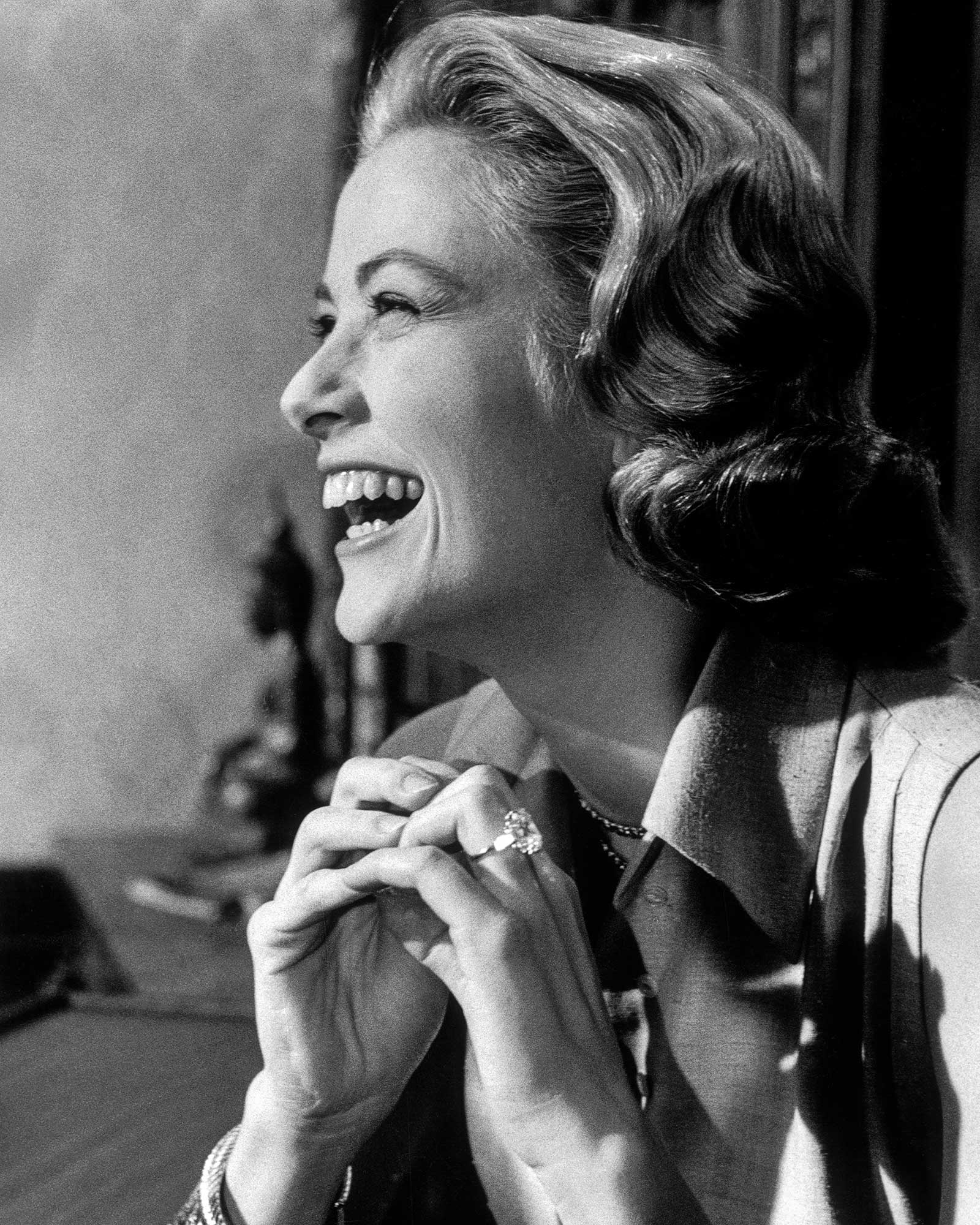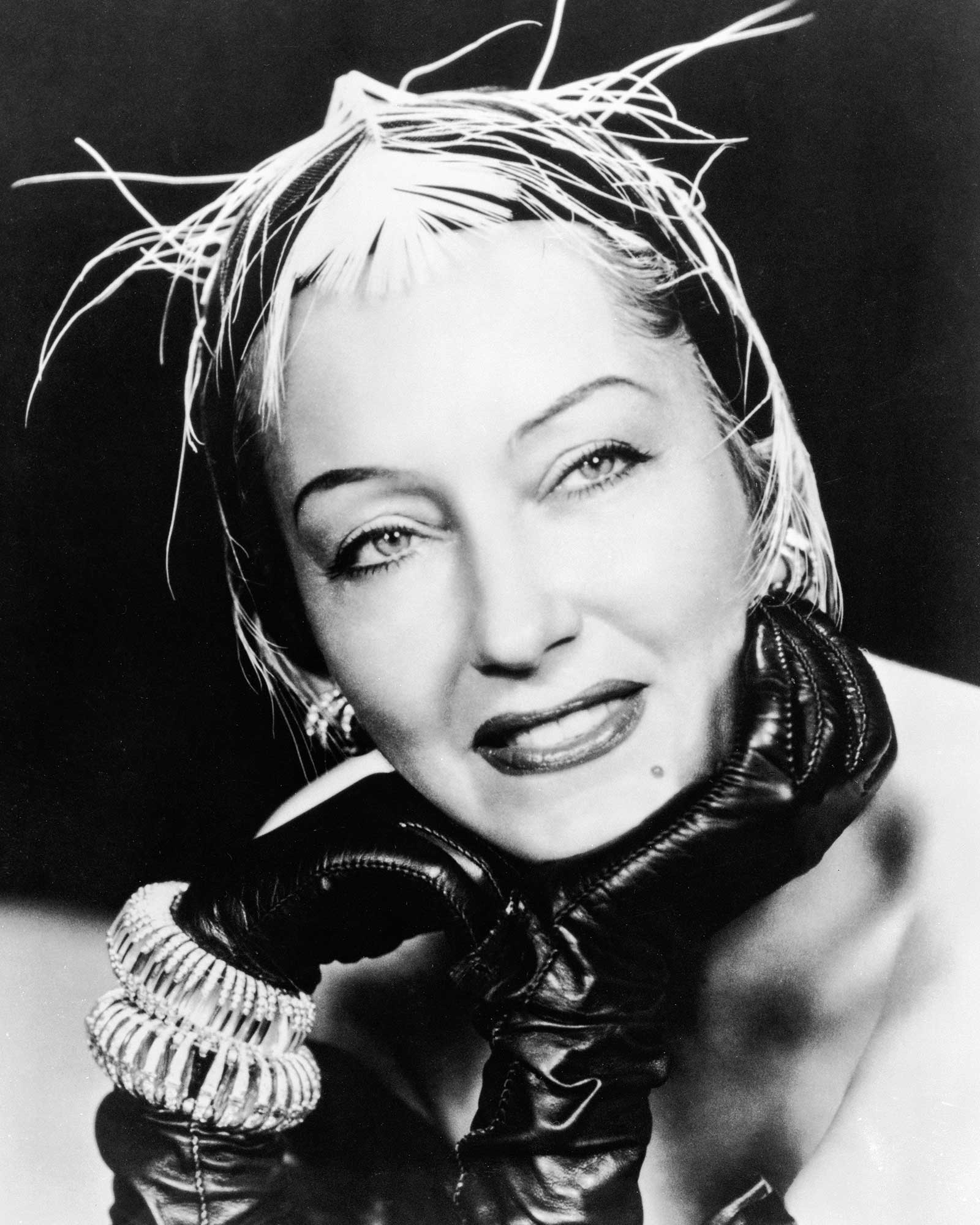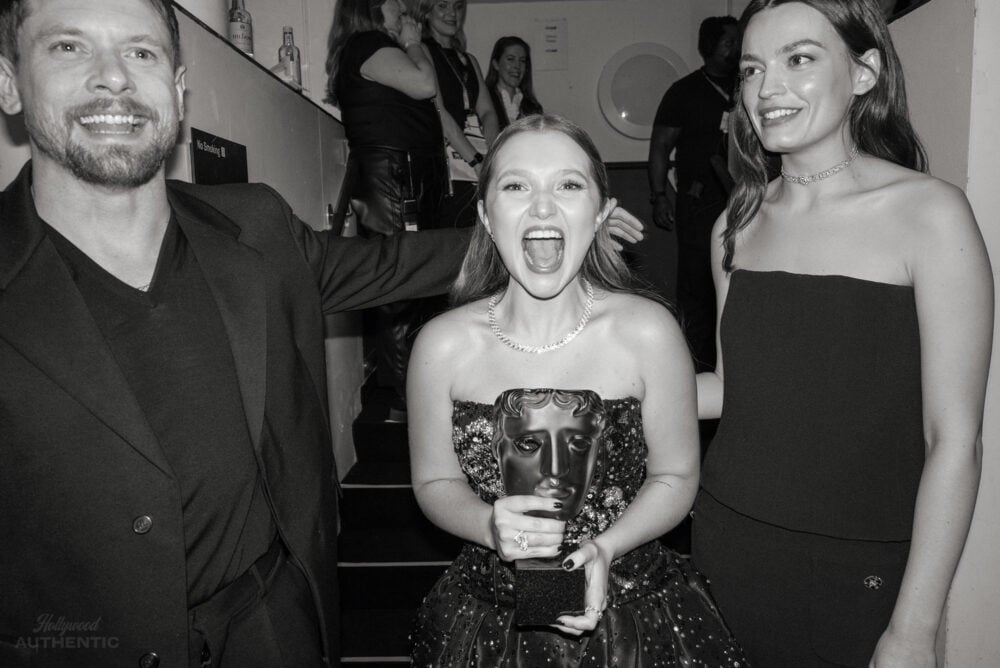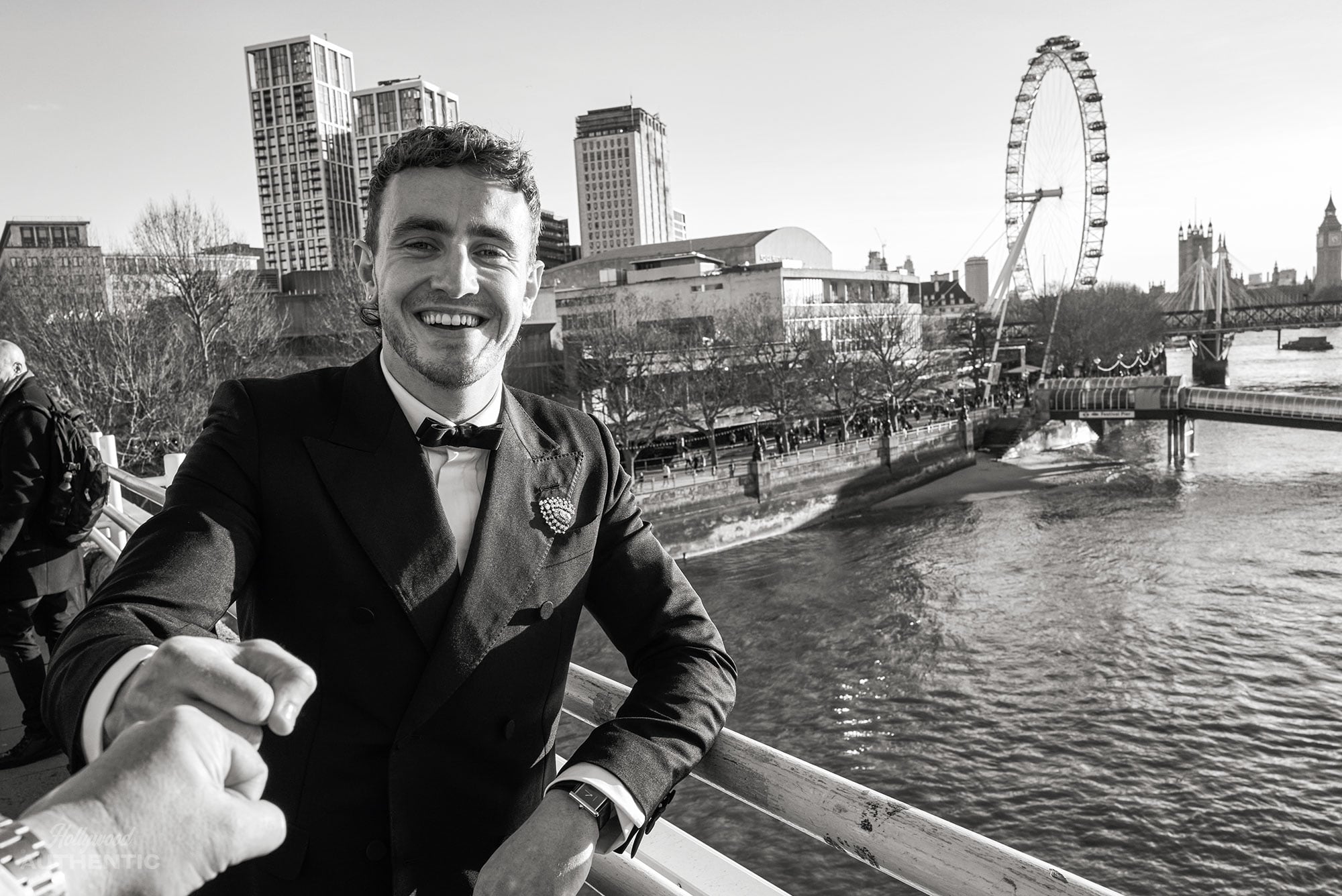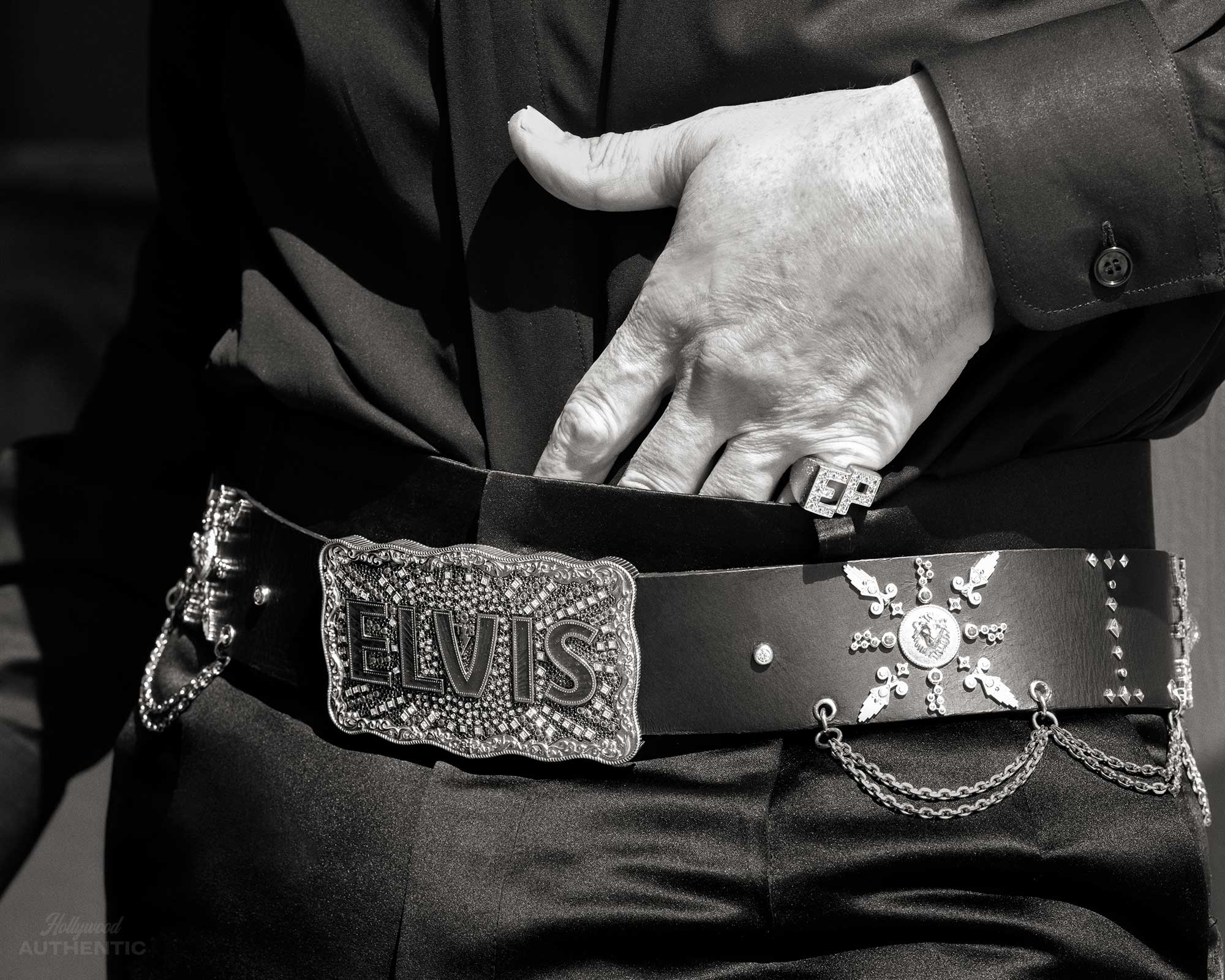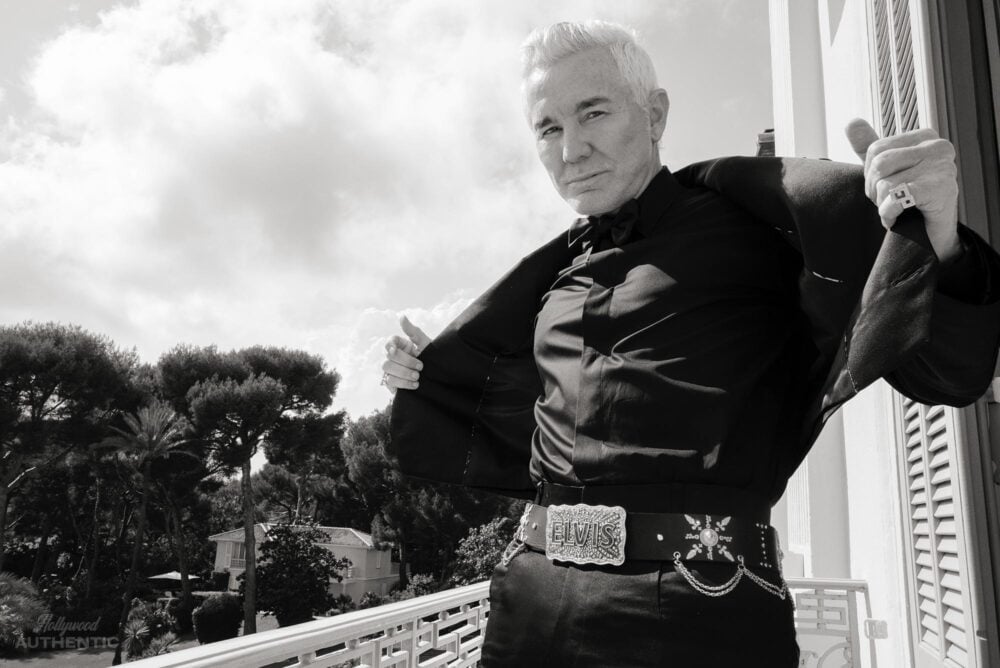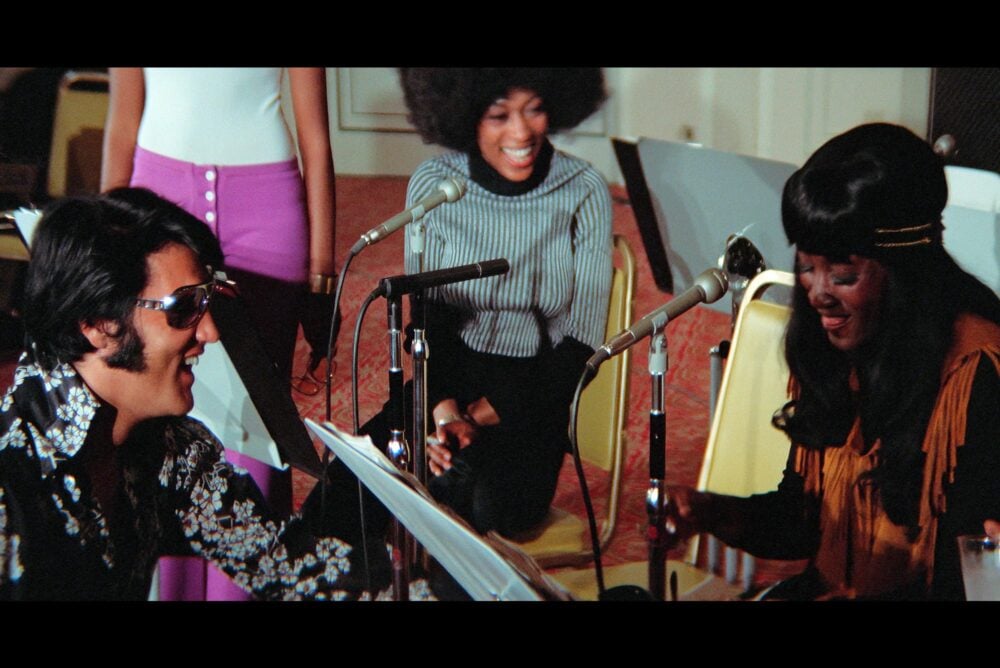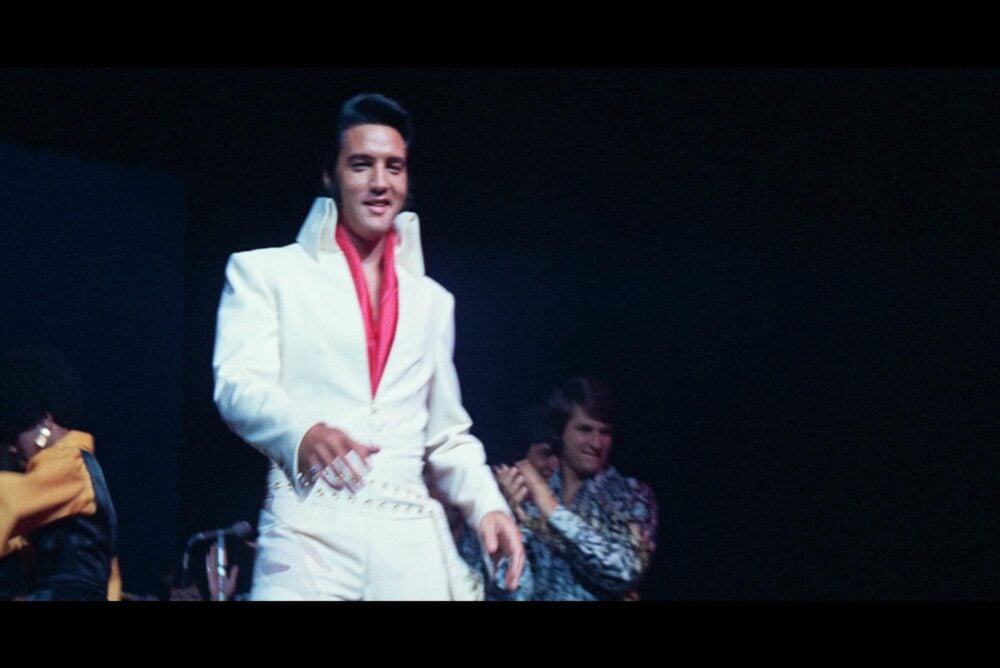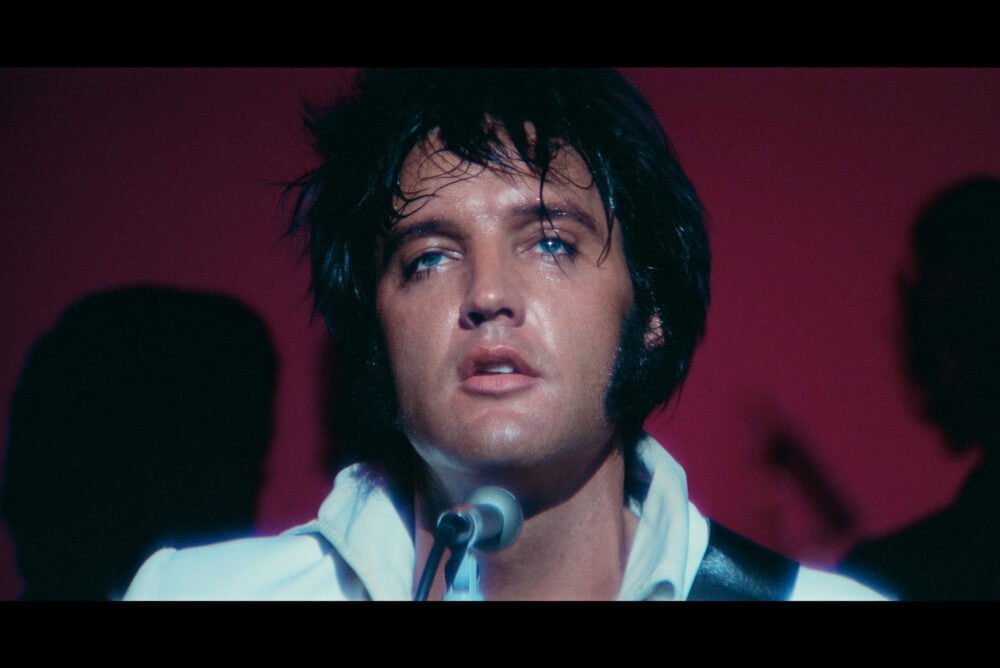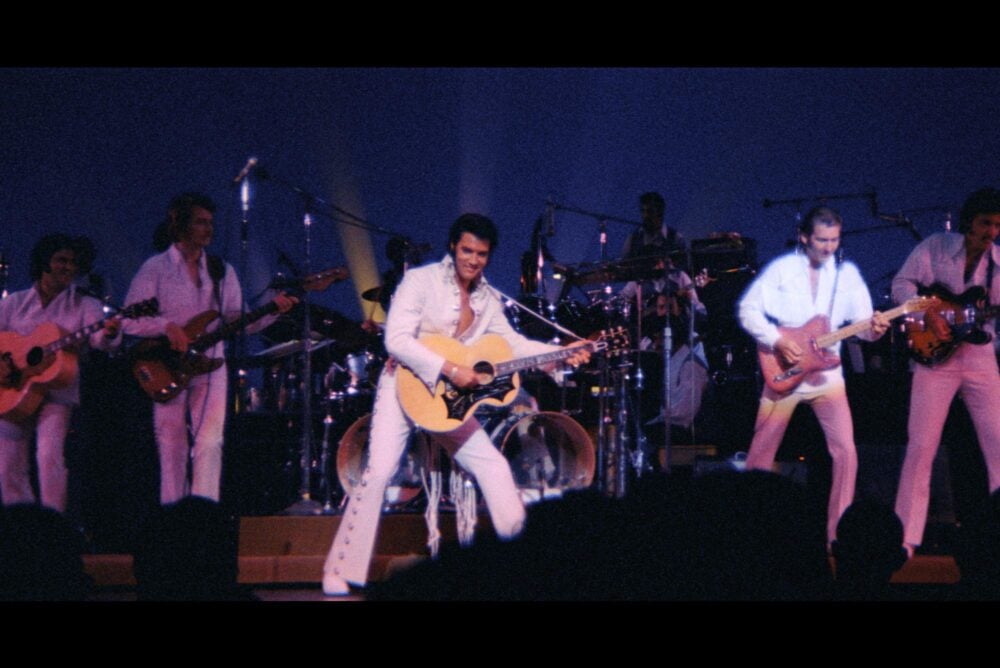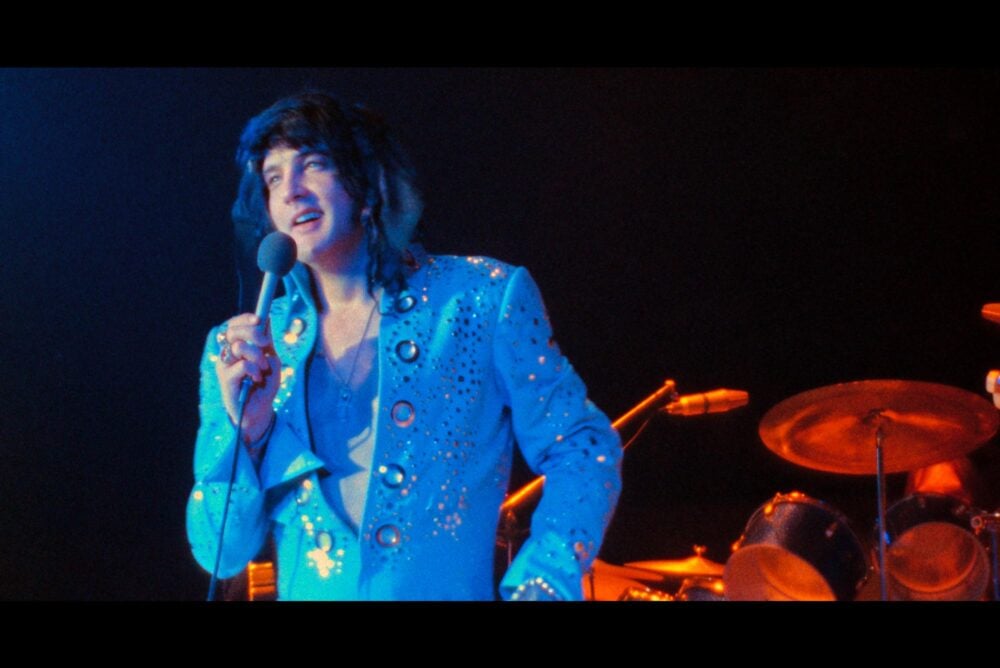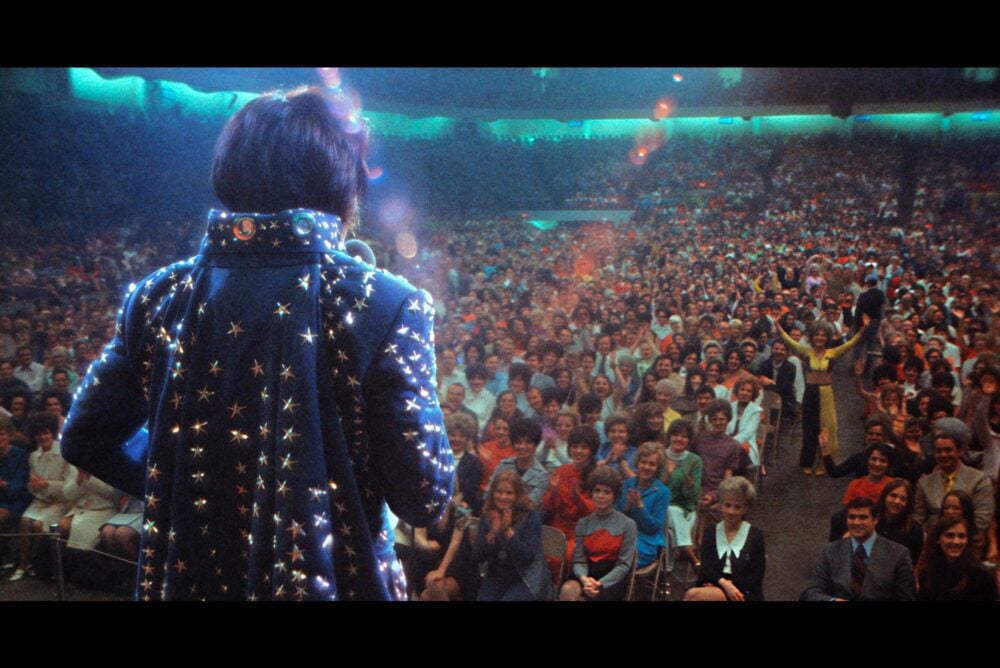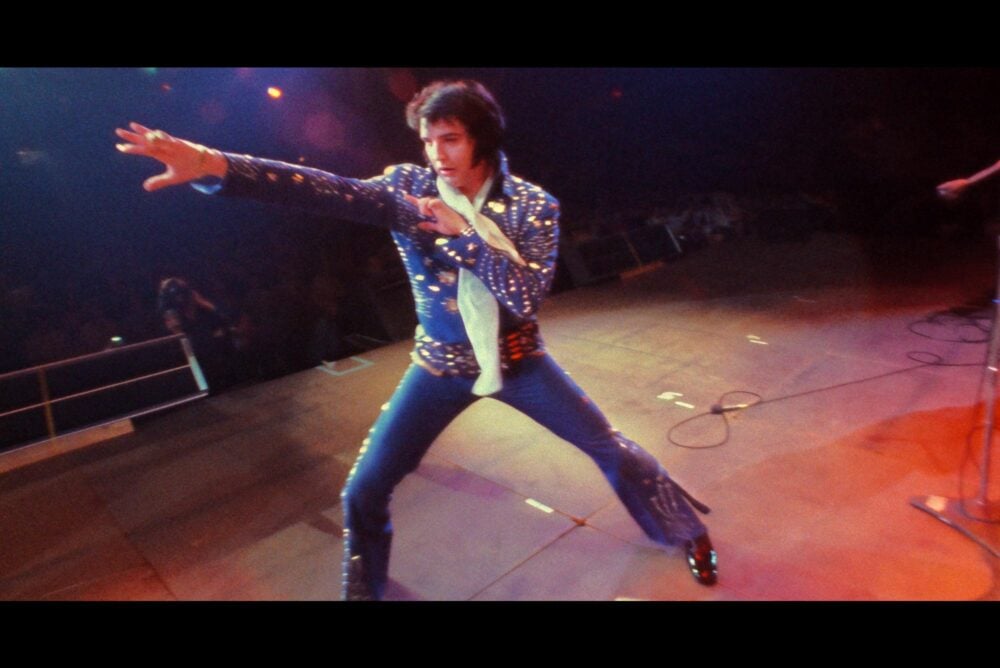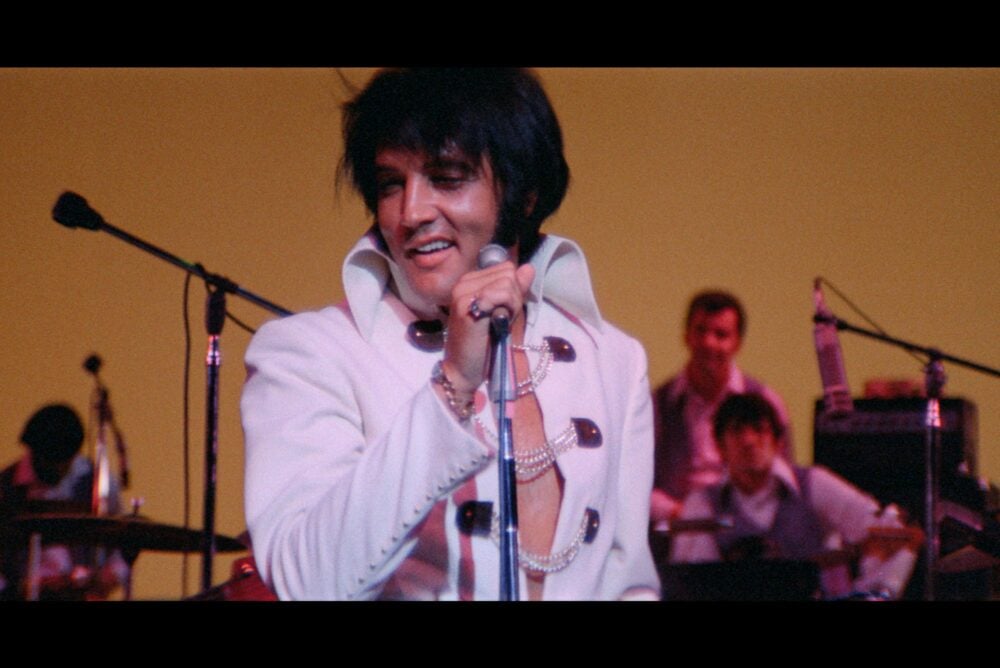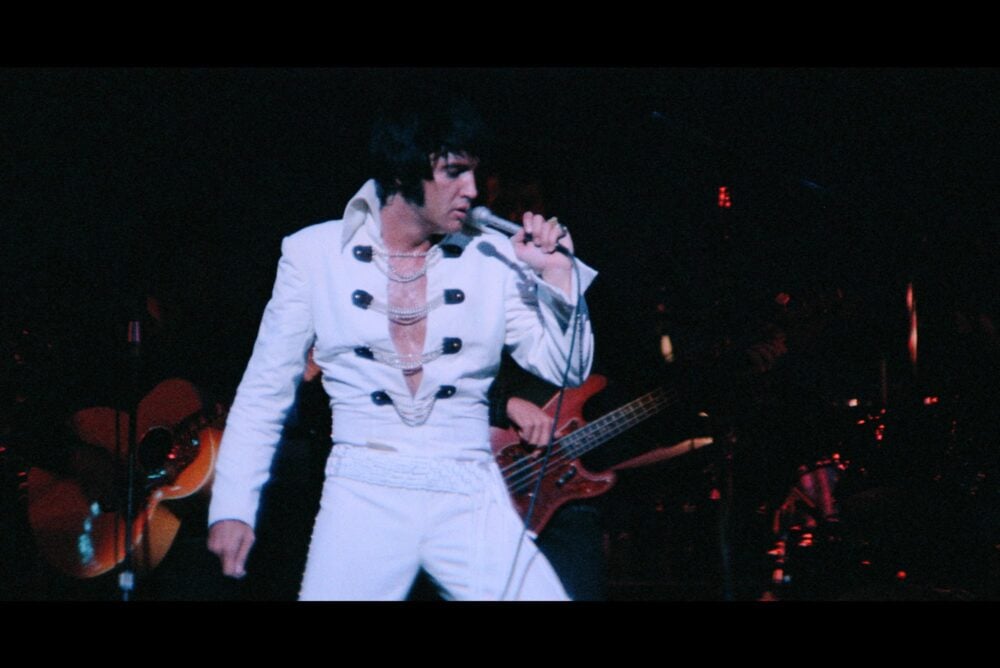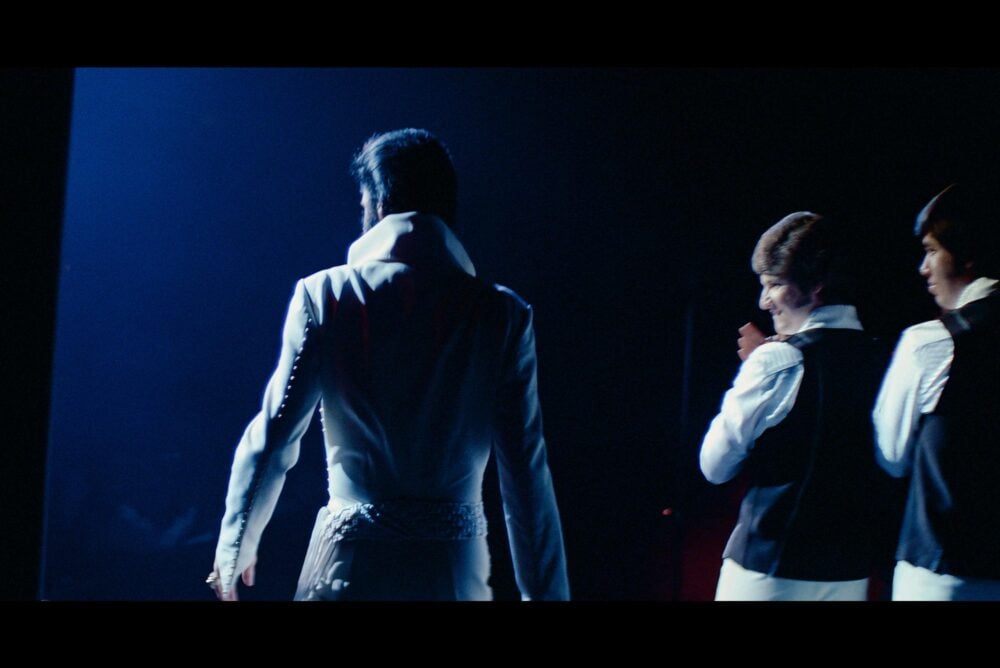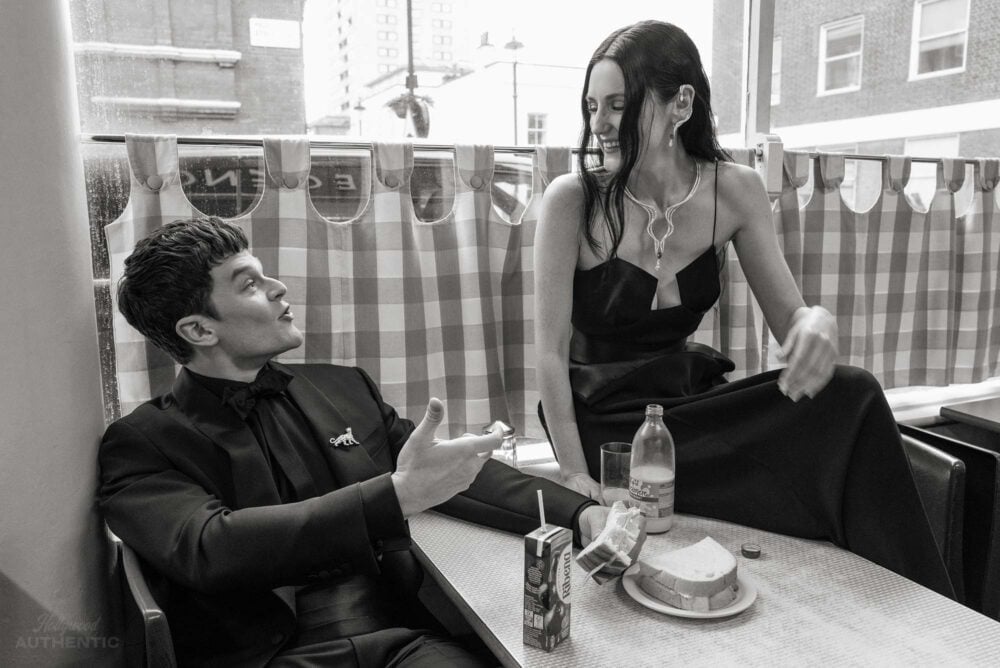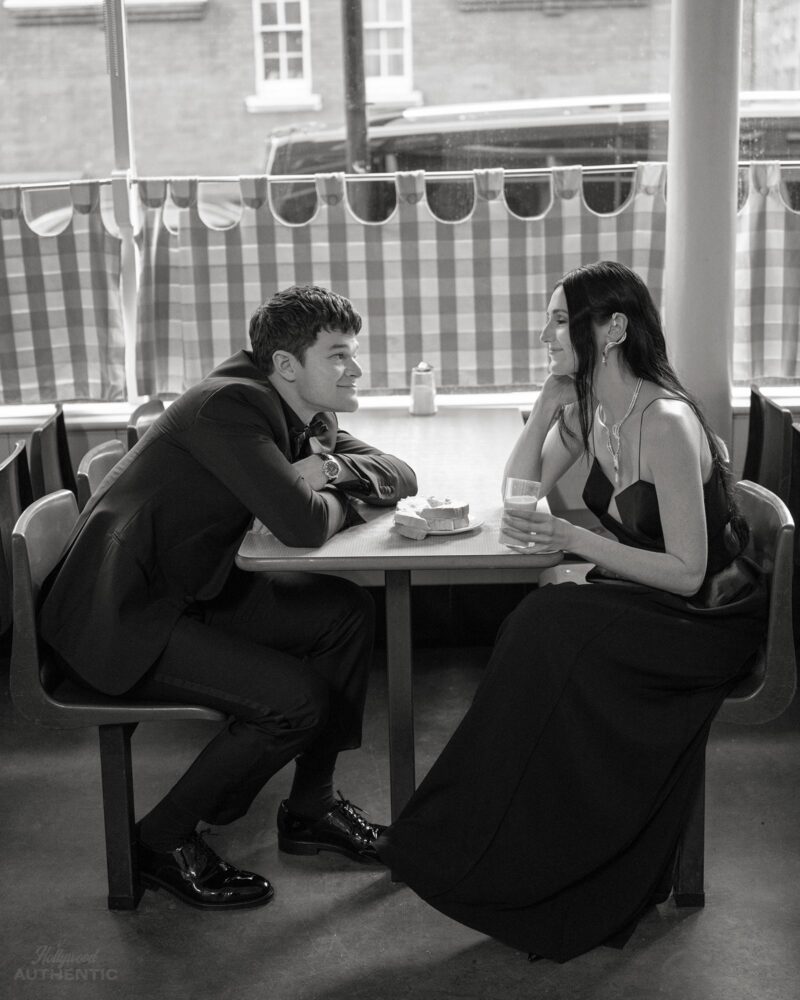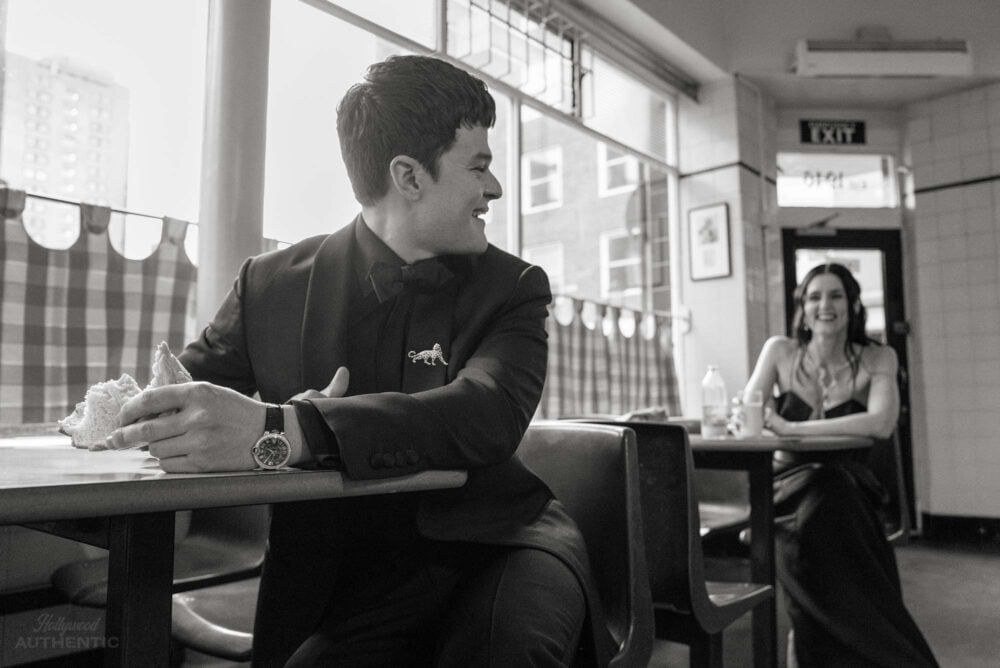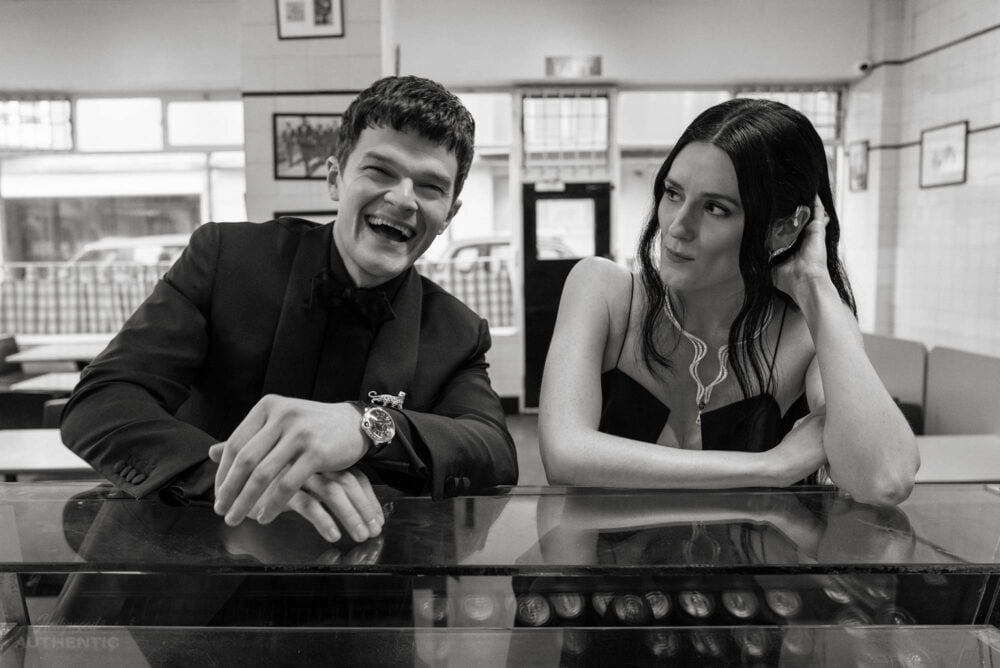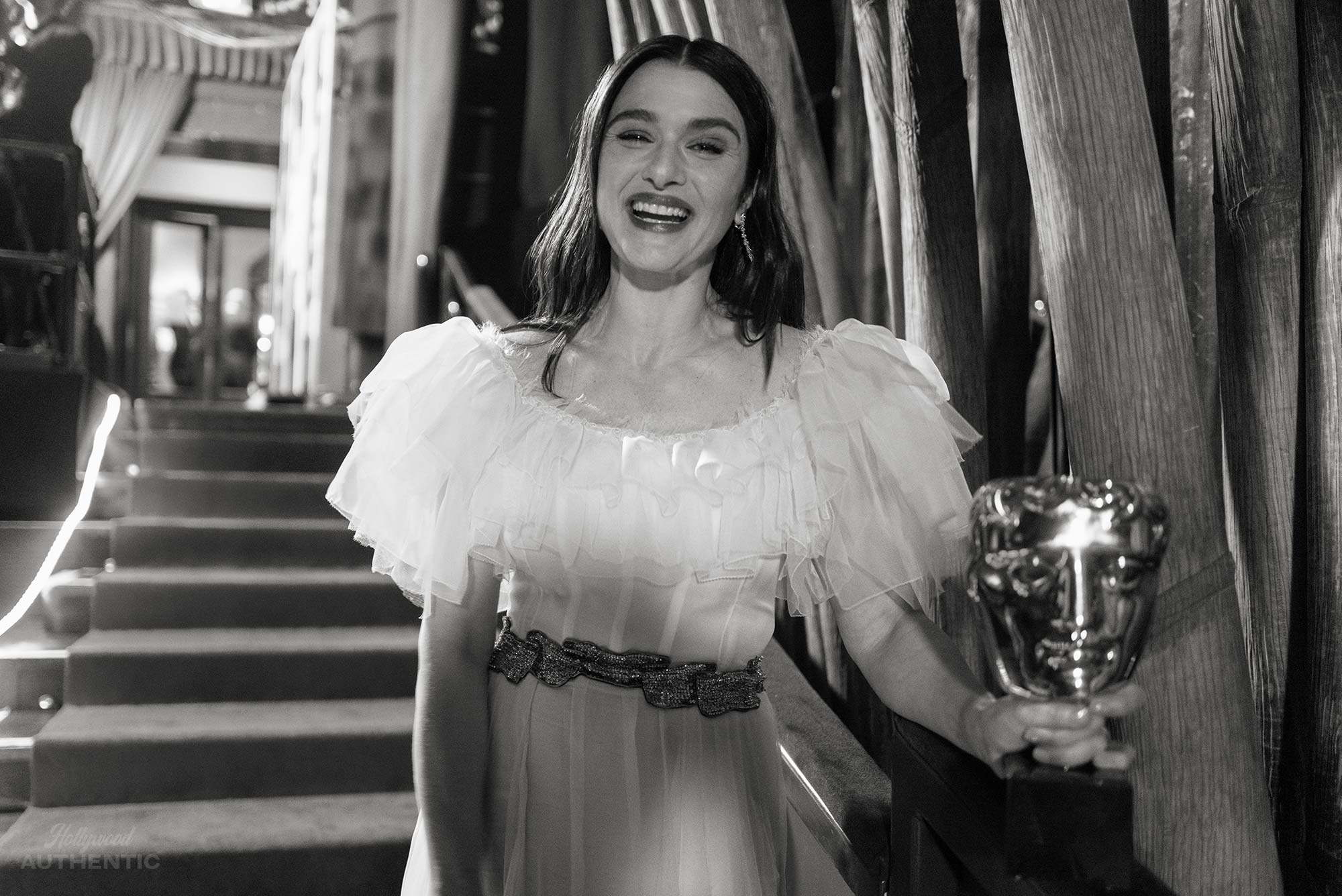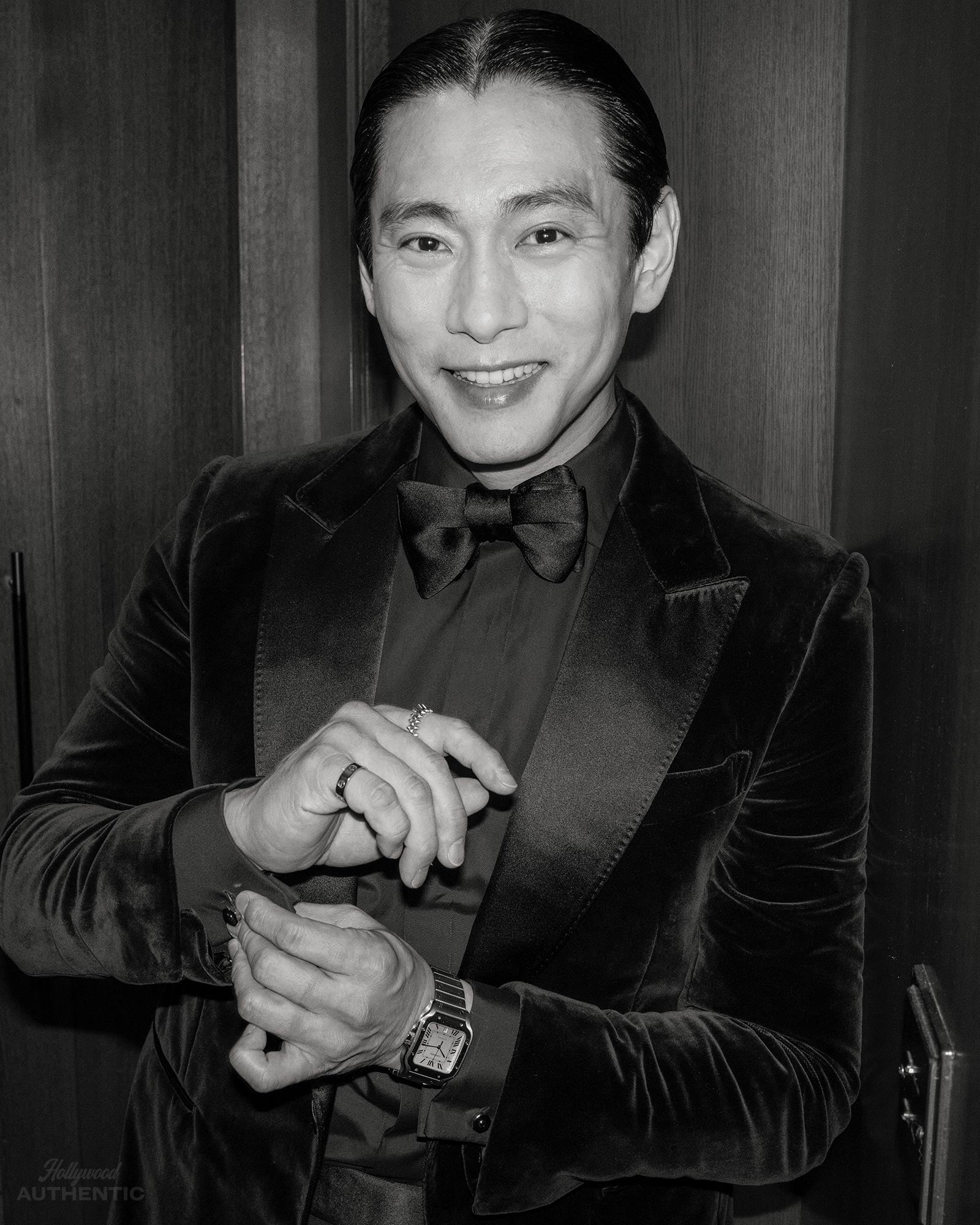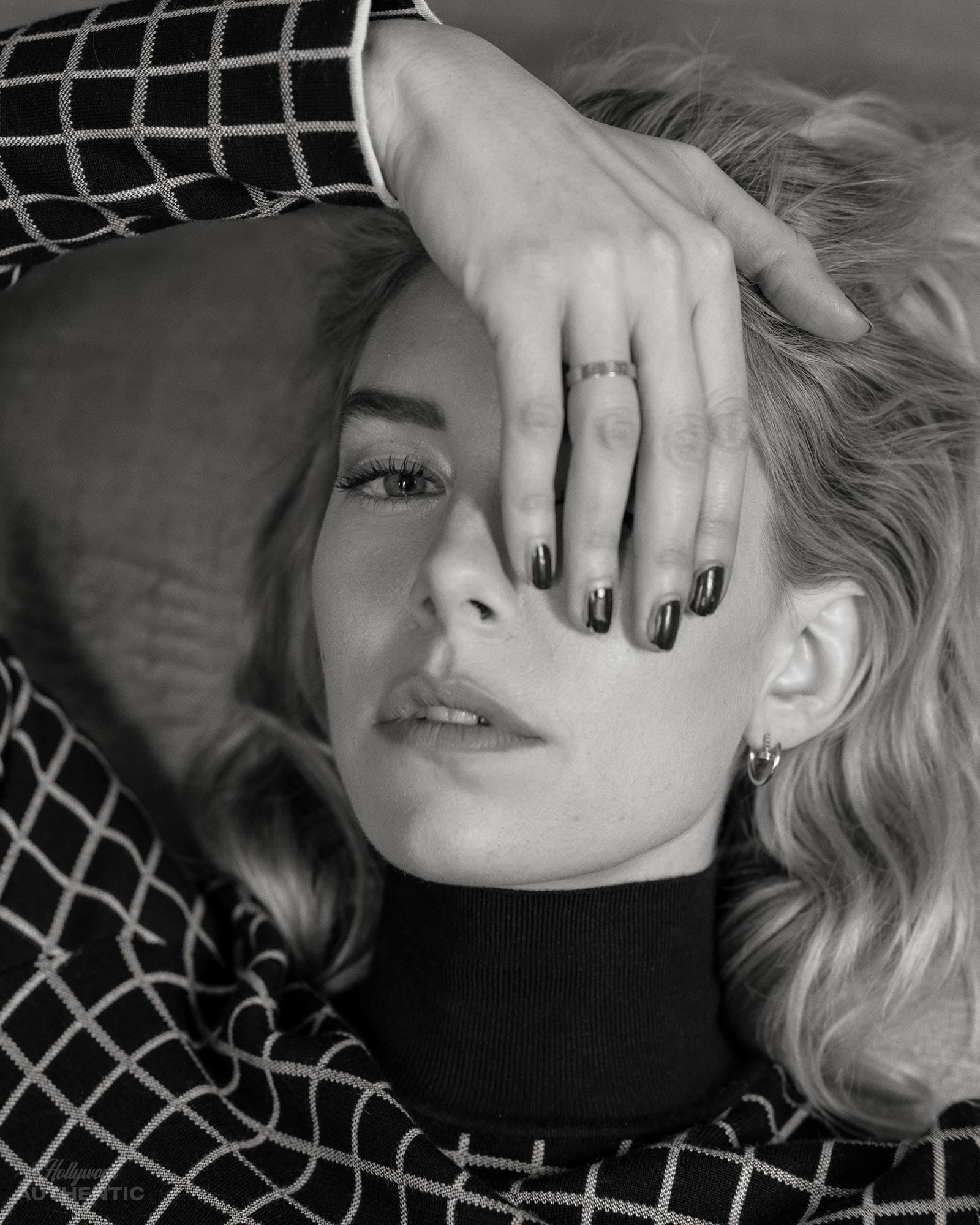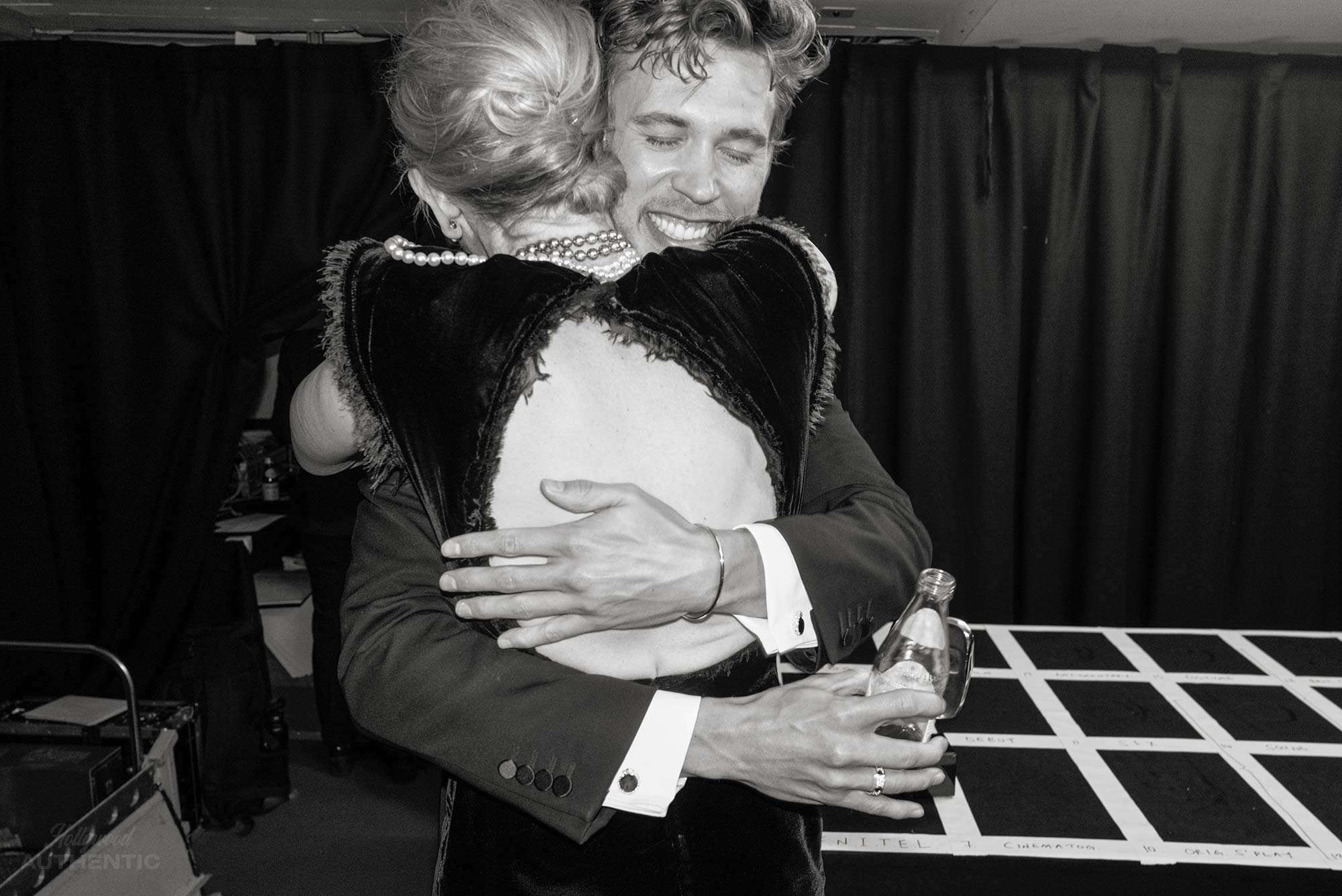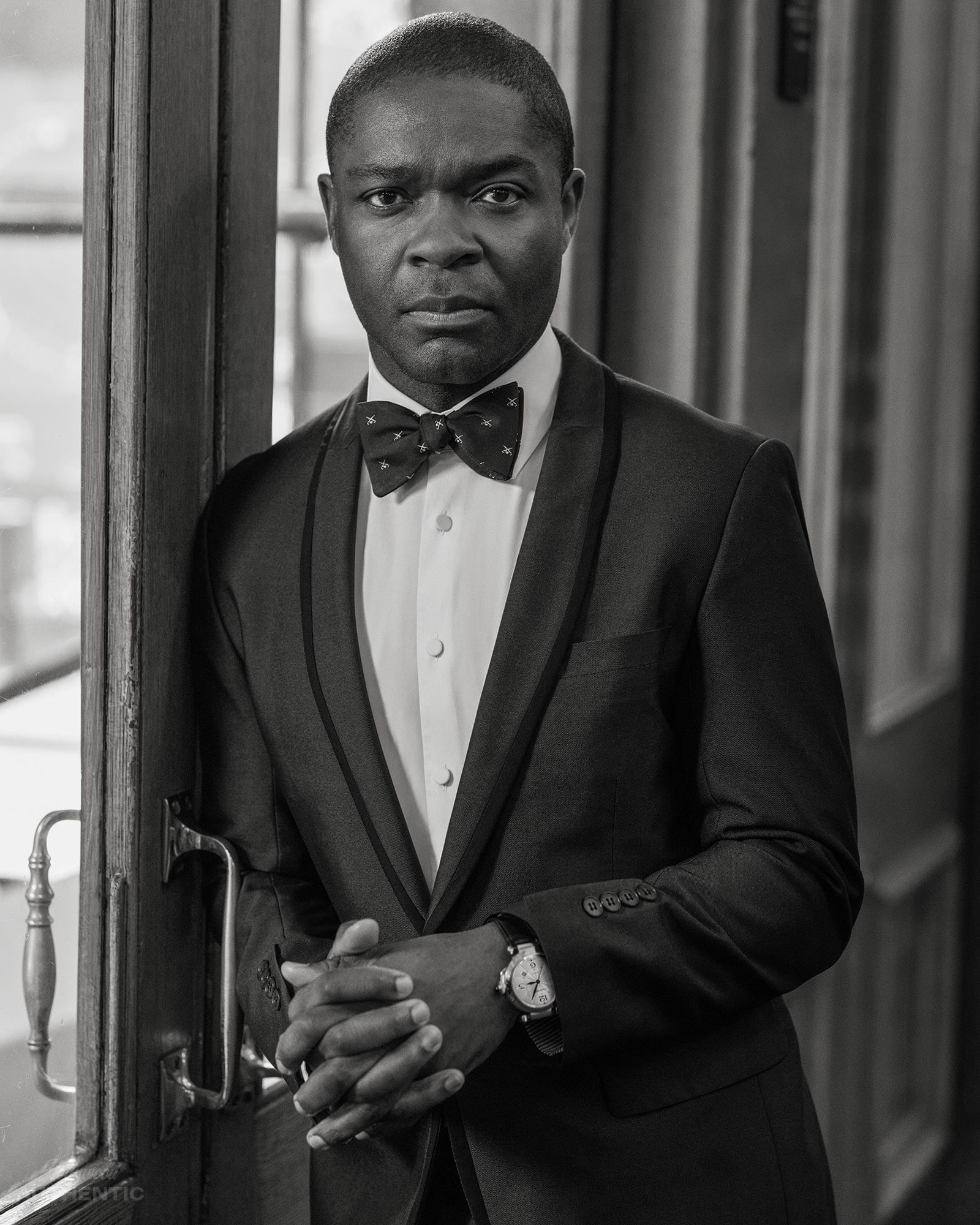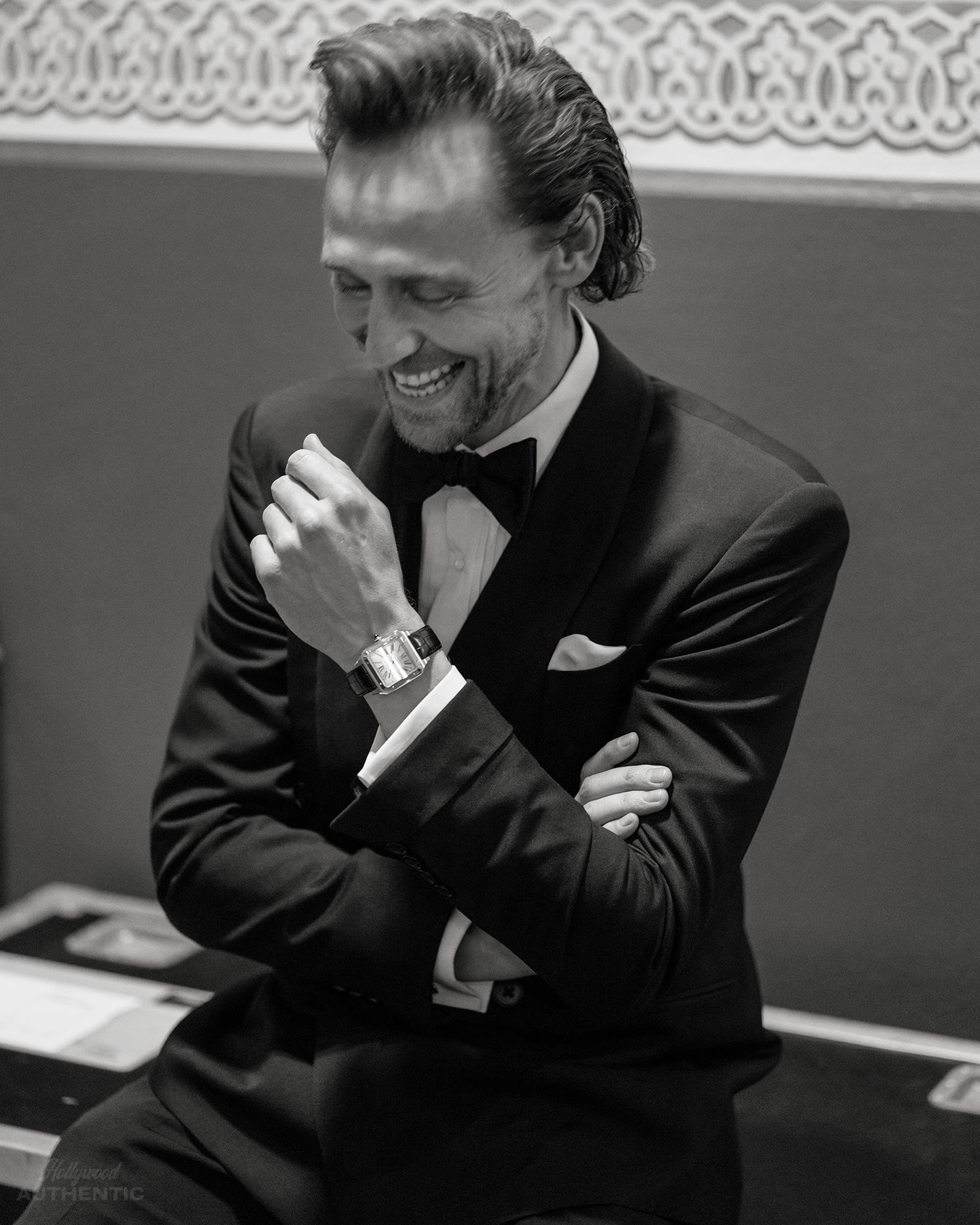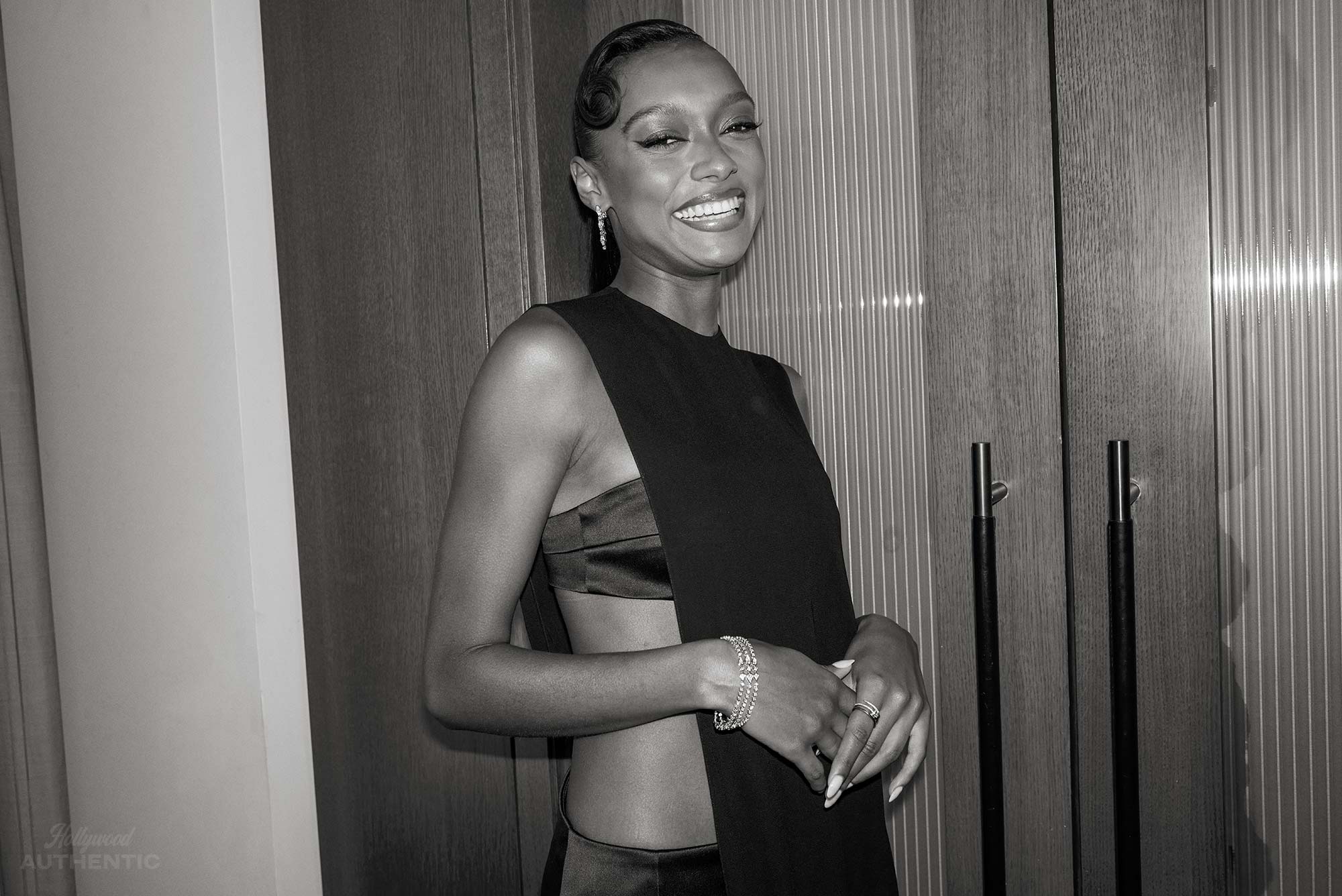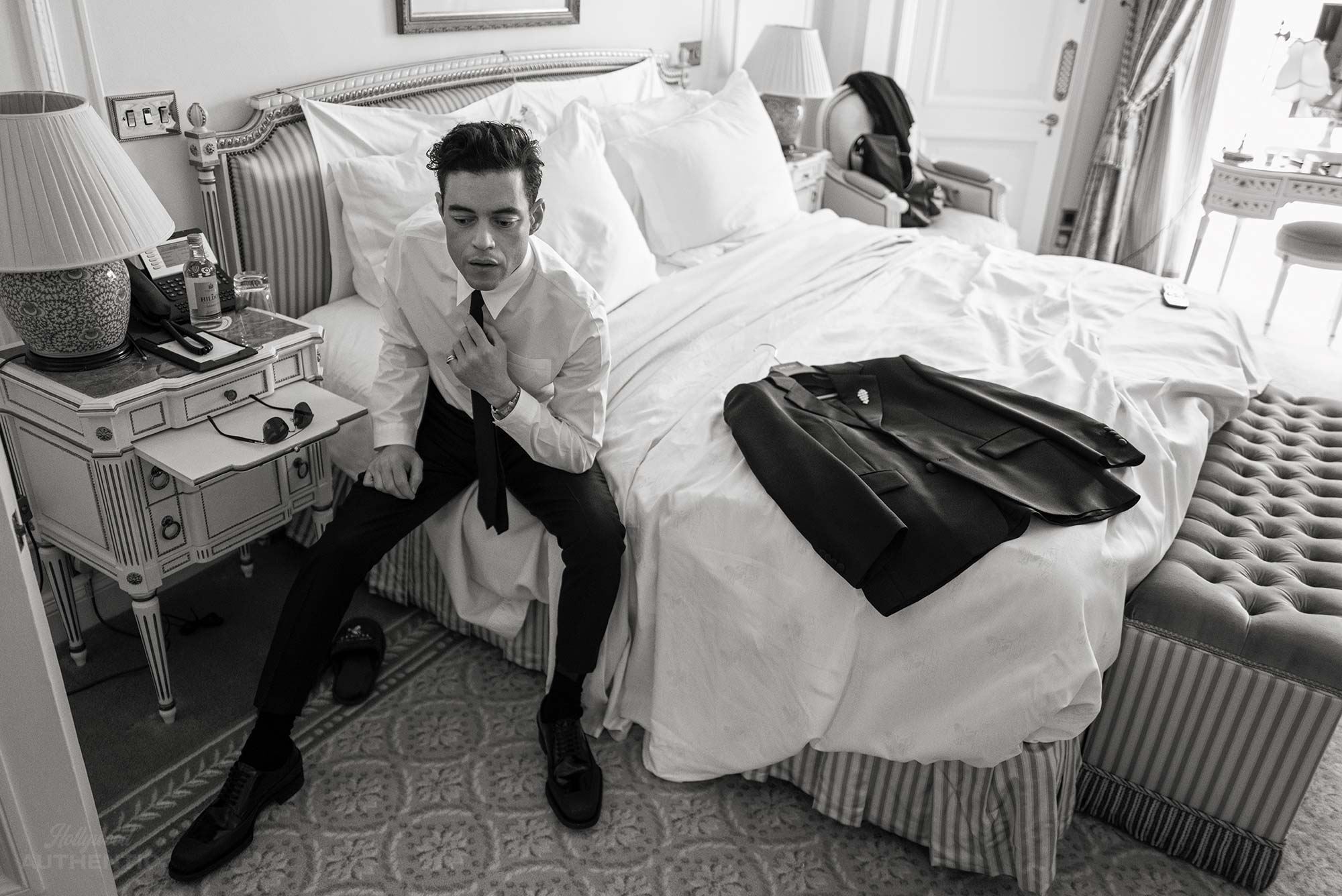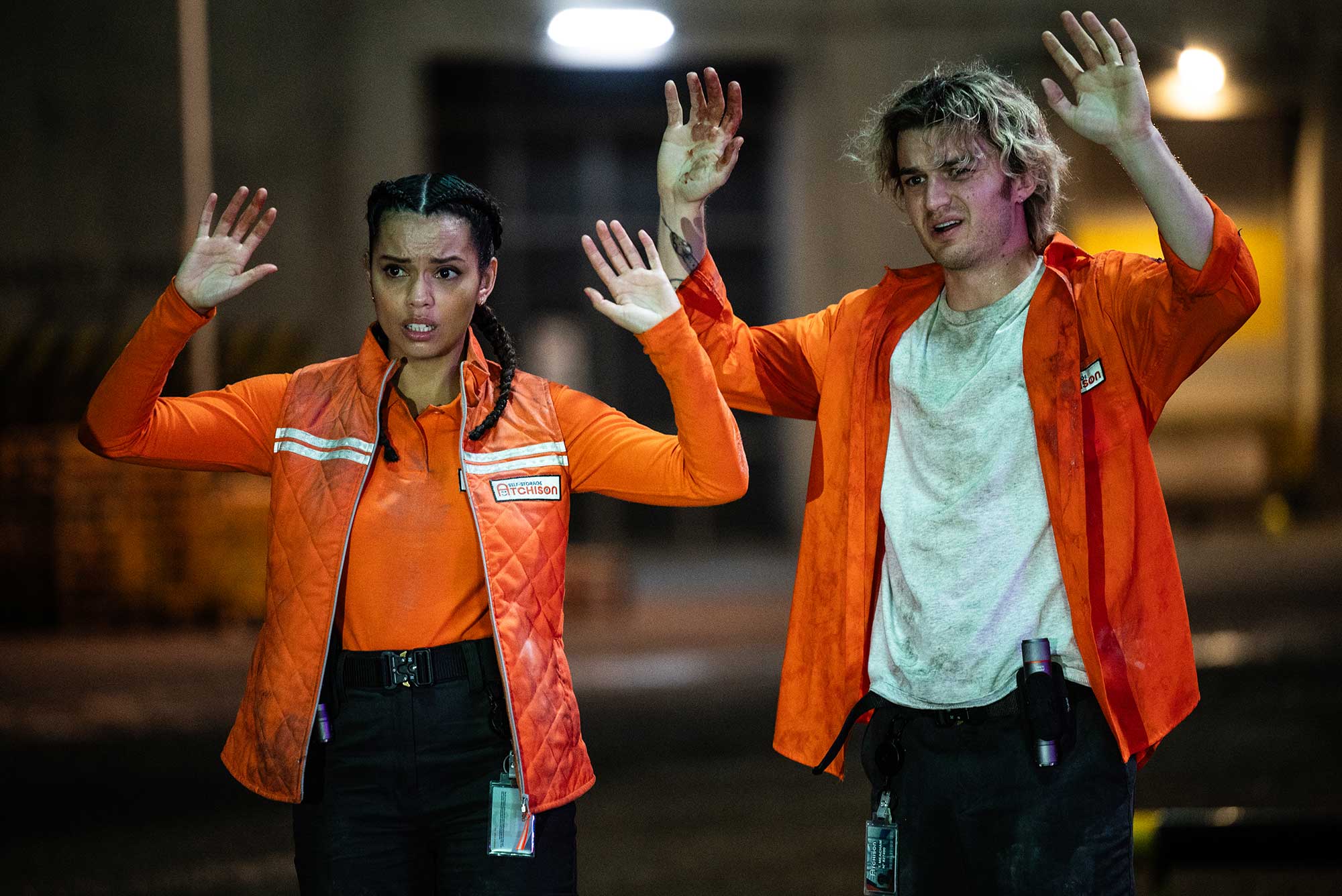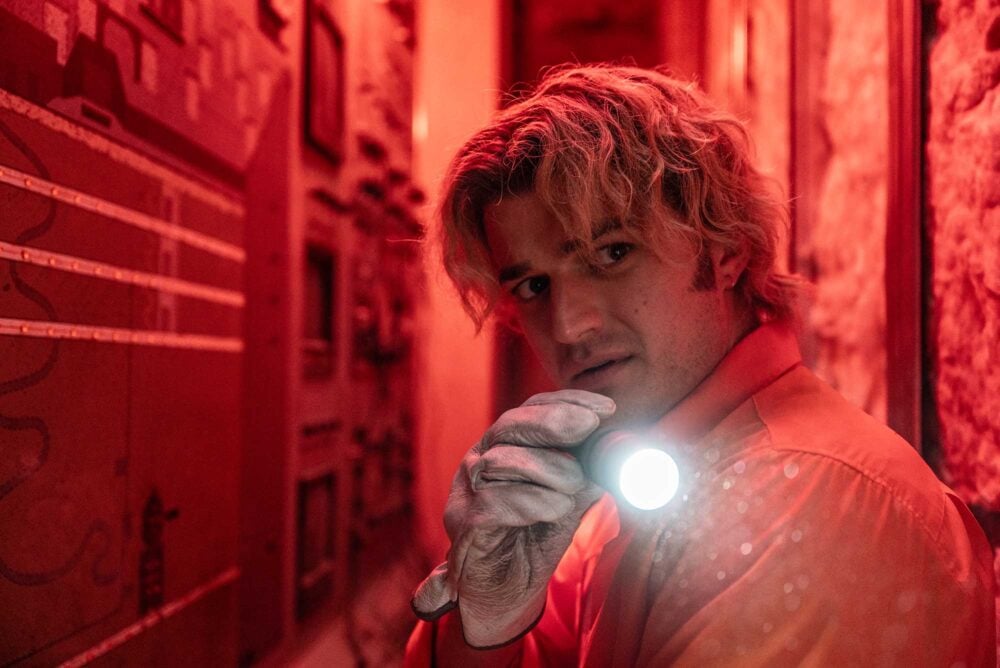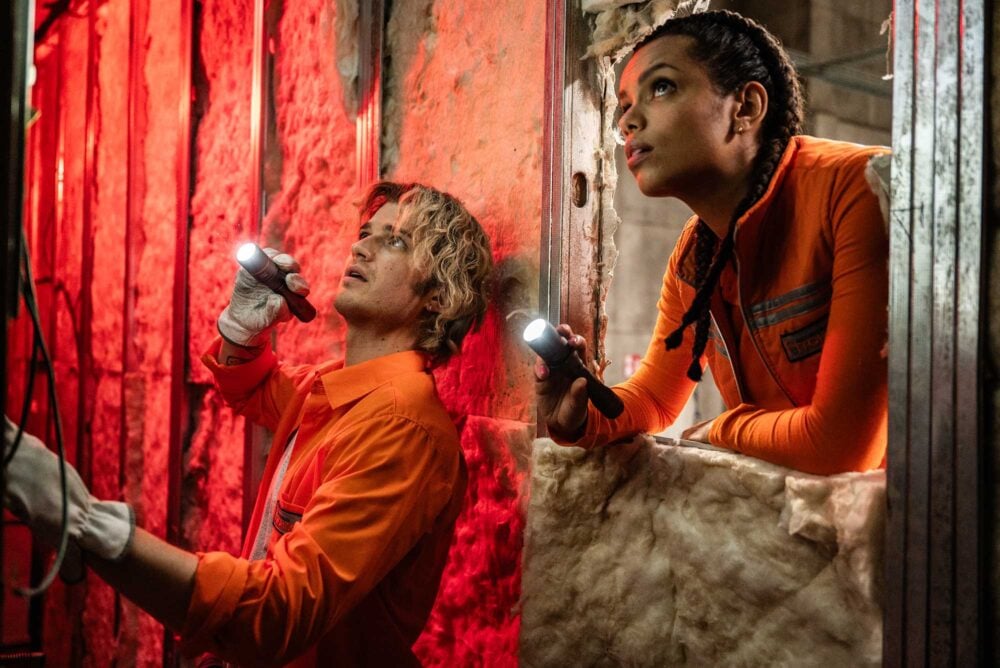
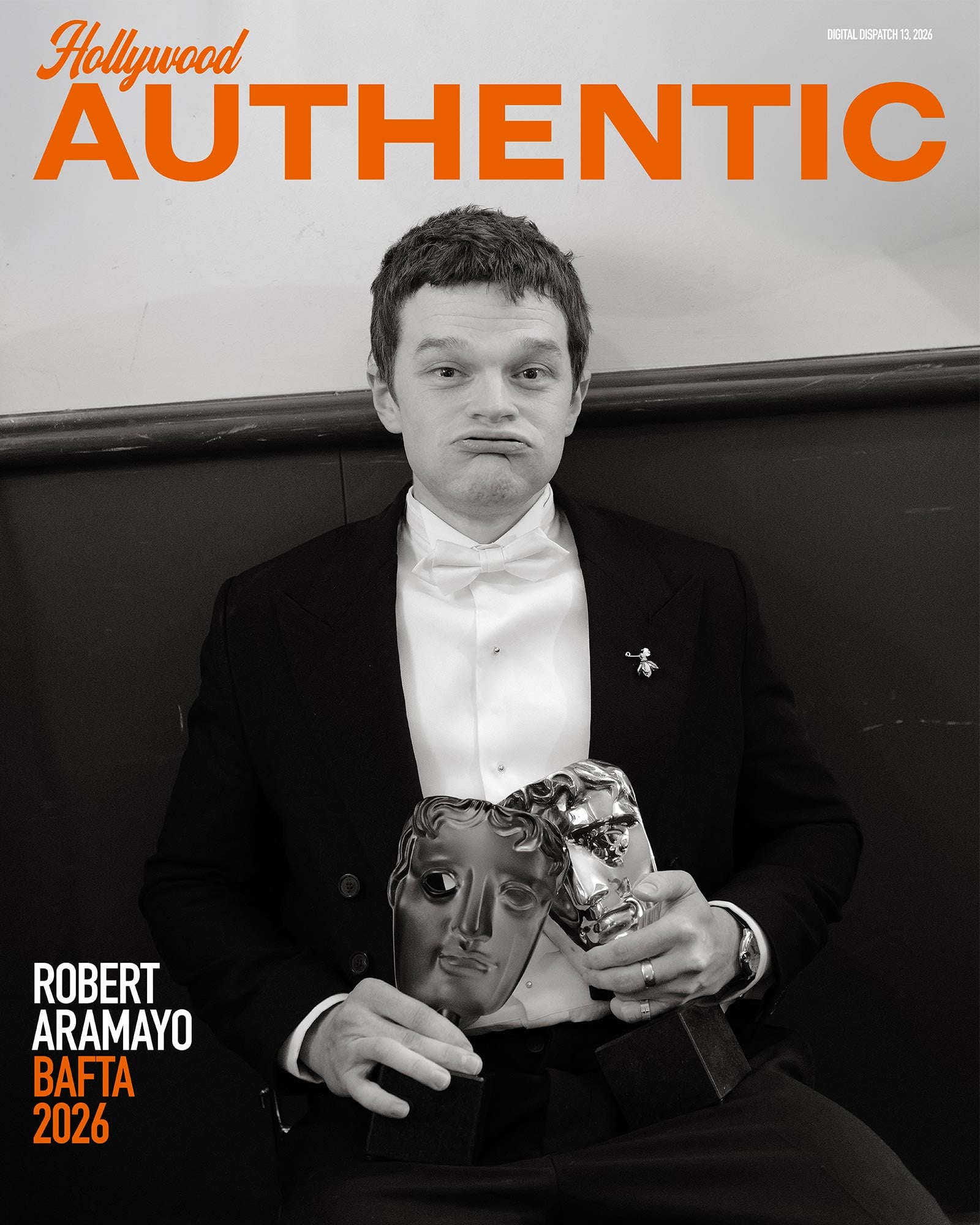
Photographs by Greg Williams
Words by Jane Crowther
Robert Aramayo’s shock at winning the Best Actor category at BAFTA last night over an impressive category including Timothée Chalamet, Leonardo DiCaprio, Michael B. Jordan, Ethan Hawke and Jesse Plemons was amplified by the collective audience gasps in the room as Kerry Washington read out his name – and clear when he came off stage grasping two BAFTA masks (having previously won the EE Rising Star Award). ‘This is MAD!’ he exclaimed to Greg Williams as he sank into a stage-side chair, his win the biggest upset of the night for bookies, and a moment that galvanises a meteoric rise this year for the Hull native. Just weeks earlier, Greg had shot Aramayo in a London greasy-spoon cafe for Cartier while the actor was juggling a theatre run in Guess How Much I Love You and the very idea of being nominated for a BAFTA. ‘It’s really genuinely unexpected,’ he told us.
After taking a moment to compose himself, Aramayo quickly found the man he’d portrayed in I Swear (releasing in the US on 24 April) backstage, campaigner John Davidson. The focus of controversy during the awards show due to his involuntary outbursts caused by Tourette Syndrome, Davidson was emotional for Aramayo, clutching him in a huge hug, the real-life Dotty from the film wiping away proud tears next to him and rocking a ‘Spunk for Milk’ necklace (one of the lines from the film)…
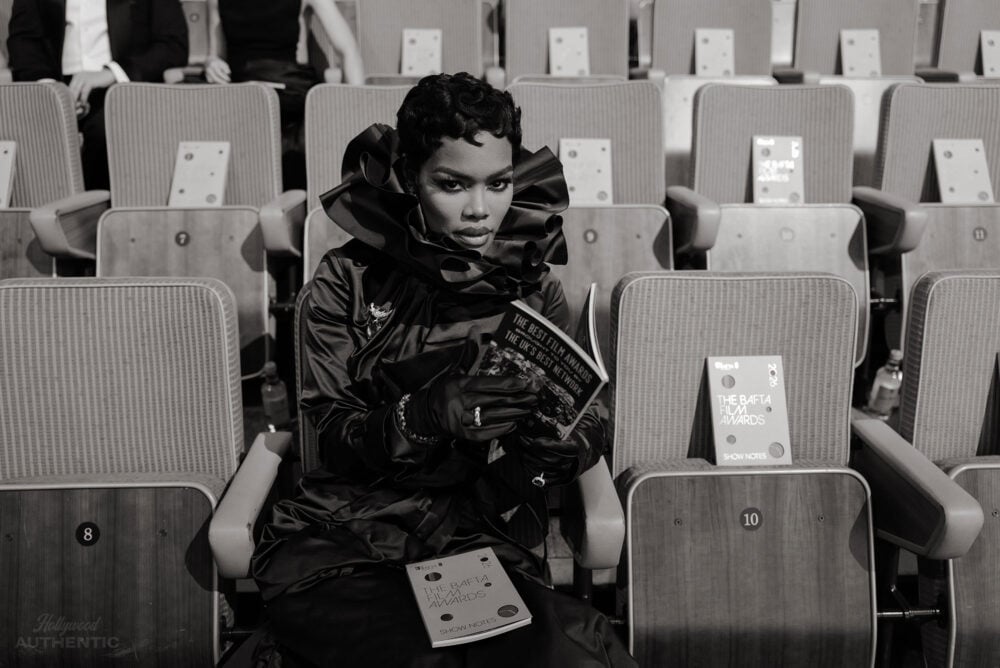
The show had begun with puce carpet arrivals from 2pm – Teyana Taylor arriving in a regal custom Burberry trench coat, her train carried behind her, with Chase Infiniti and Erin Doherty both negotiating structured, space-taking Louis Vuitton silhouettes, Paul Mescal (in Prada with Cartier jewels) and Gracie Abrams enjoying a date night, and Sinners on-screen adversaries, Michael B. Jordan (in monochrome Prada) and Jack O’Connell, sharing a warm embrace. The rain held off for an unseasonably mild afternoon as guests crowded the Royal Festival Hall terrace to sip Taittinger Champagne in the sunshine.
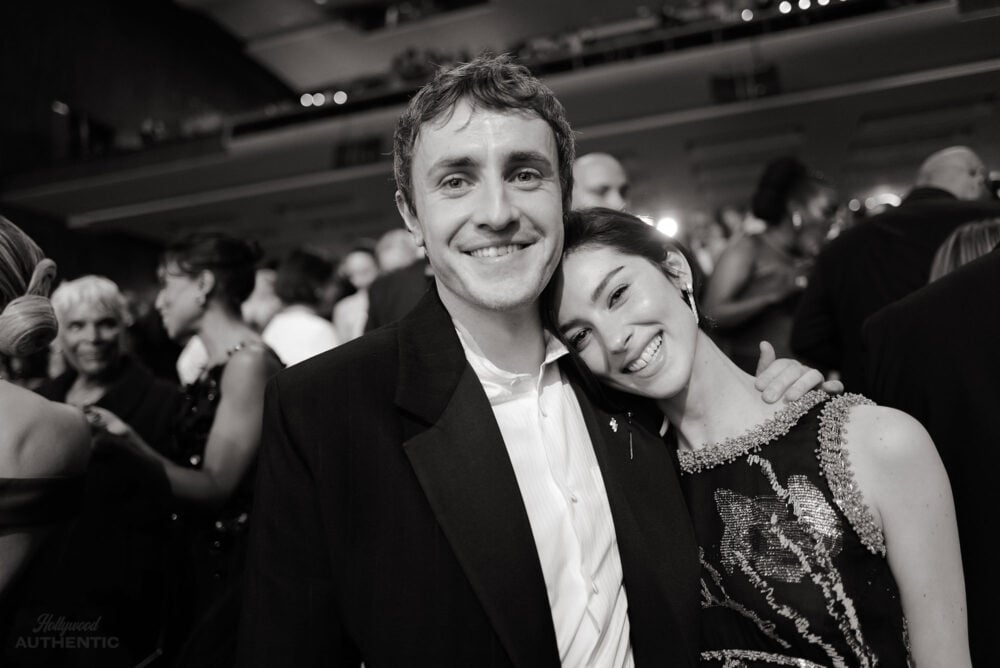
Having walked the carpet alone, Timothée Chalamet hung out in the green room backstage with Kylie Jenner and the evening’s first presenters, Michael B. Jordan and Delroy Lindo, before heading to the auditorium as guests found their seats for a show presented by Alan Cumming, with the Prince and Princess of Wales in attendance. After Jordan and Lindo had kicked off the night awarding Best Special Effects to the Avatar: Fire and Ash team, they lingered at backstage monitors to watch the Best Supporting Actress category, whooping and applauding in delight when Sinners colleague Wunmi Mosaku (in an electric blue custom gown by Priya Ahluwalia) won. ‘Get it in, let’s do it!’ Jordan encouraged her as she thanked her teachers before he and Lindo ensured the pregnant actress negotiated the stairs off-stage safely.
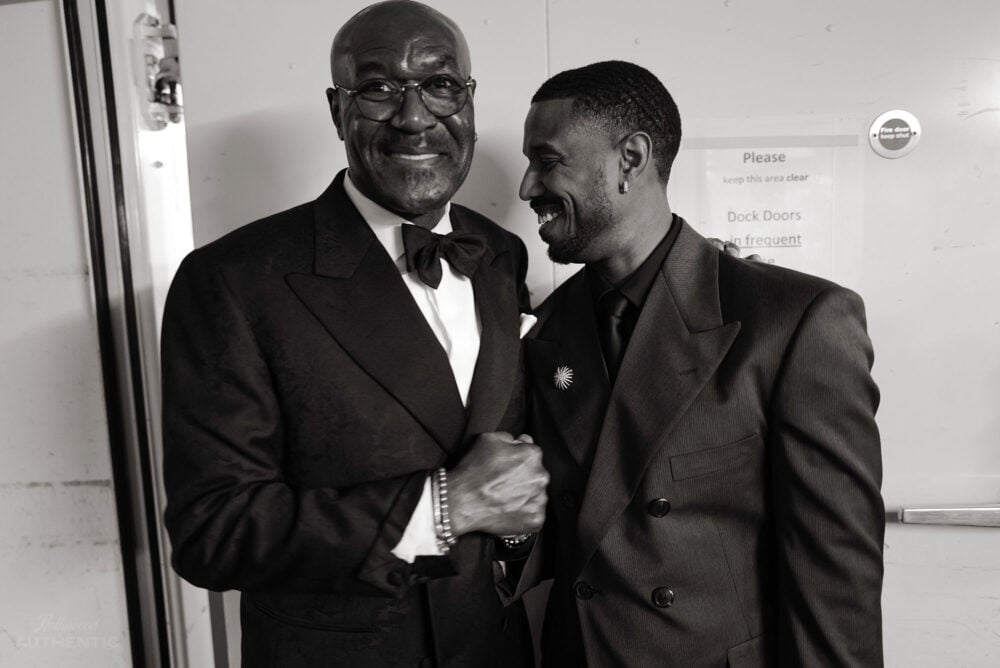
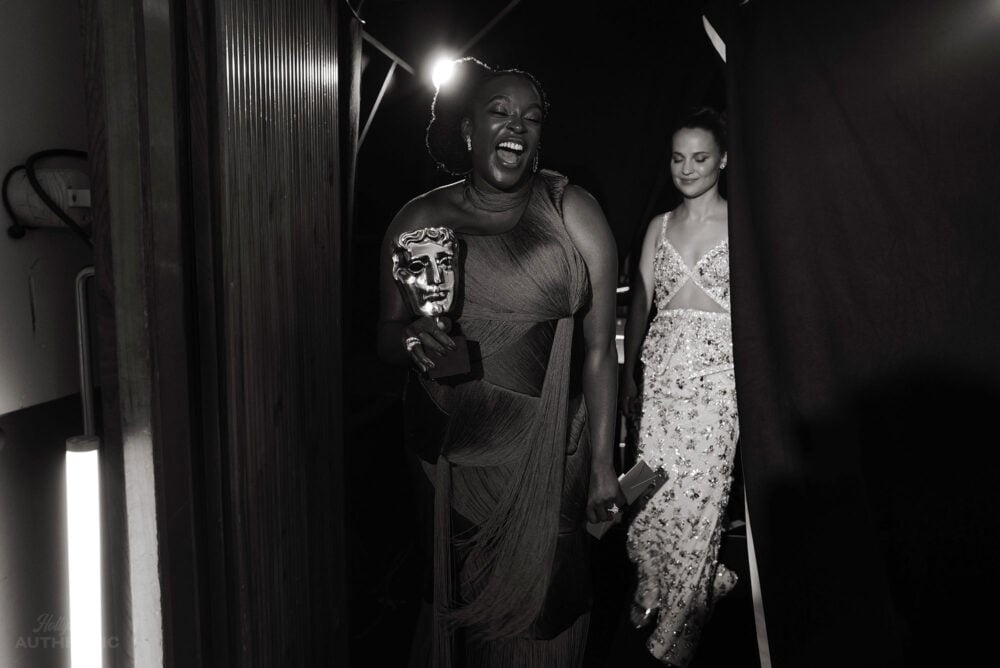
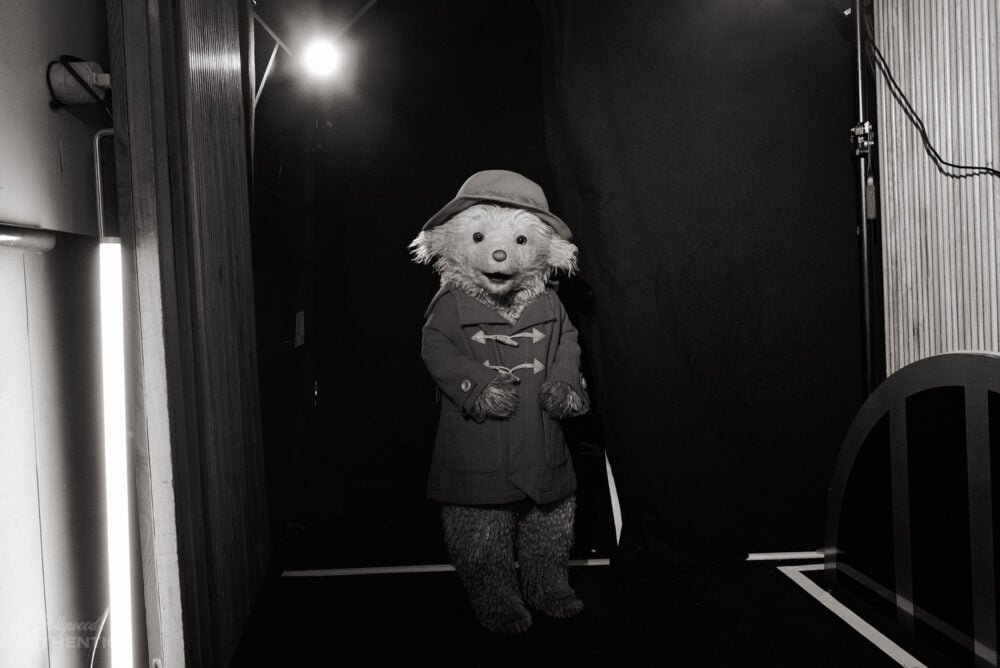
Supporting actor was won by Sean Penn for One Battle After Another, who was absent from the event, but presenter Maggie Gyllenhaal ensured she snapped a photo of his winning envelope as she left the stage, before the star to cause the biggest stir backstage arrived. ‘This is the highlight of my evening!’ gasped Erin Doherty when she was informed that Paddington Bear from the West End sellout musical would pass her in the wings. Performed physically by Arti Shah with James Hameed providing the voice and controlling the marmalade lover’s facial expressions, Paddington wowed the audience as he toddled on stage, hand in hand with a guide, to present Best Children’s and Family Film, won by Boong. He later got in the artists’ lift backstage, holding court while blinking and smiling under his felt hat.
The run of Frankenstein wins began with the film taking home Best Production Design for Tamara Deverell and Shane Viea, Best Hair And Make Up for Jordan Samuel, Cliona Furey, Mike Hill and Megan Many and Best Costume Design for recent Hollywood Authentic profile, Kate Hawley before another act to prompt giddiness. The KPop Demon Hunters trio performed ‘Golden’ from the film; EJAE, Audrey Nuna and REI AMI harmonised backstage a cappella before blasting their song to a front-row Chase Infiniti (singing along to all the words) and Timothée Chalamet taking photos on his phone.
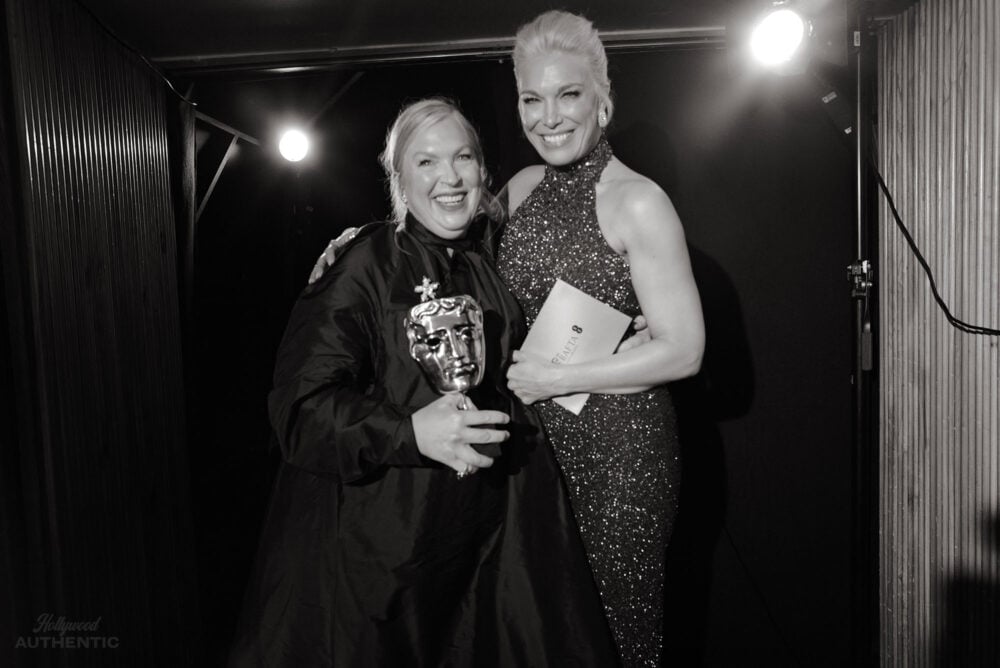
As Ethan Hawke strolled to the wings with a glass of red wine, Sinners grabbed another award for Ryan Coogler for Best Original Screenplay, as Outstanding Debut by a British Writer, Director or Producer went to Akinola Davies Jr for My Father’s Shadow starring recent Hollywood Authentic cover star Ṣọpẹ́ Dìrísù and I Swear won for Best Casting. One Battle After Another’s 6-gong haul continued with Best Cinematography for Michael Bauman (the film also bagged Best Editing for Andy Jurgensen as well as Director and Adapted Screenplay for Paul Thomas Anderson and Best Film).
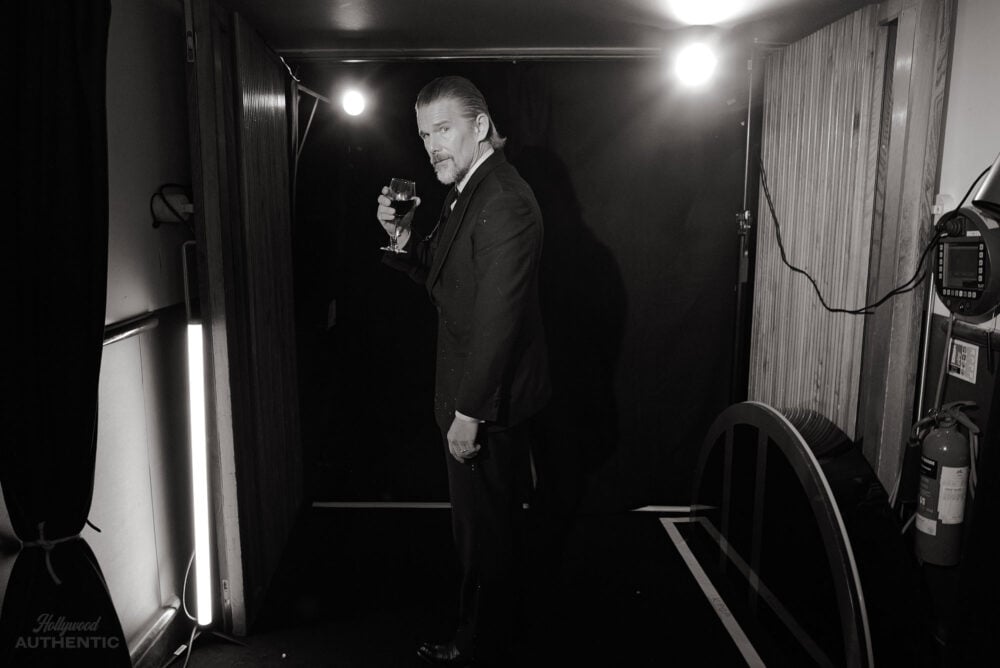
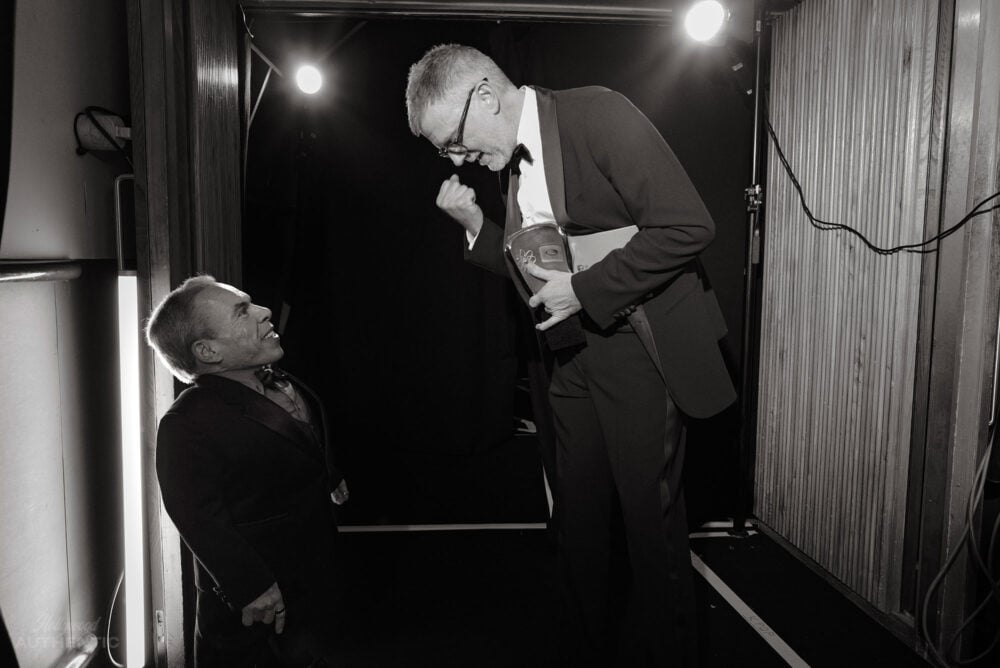
The In Memoriam segment was accompanied by Jessie Ware singing ‘The Way We Were’ and as she stood backstage doing vocal warm-up she was greeted and encouraged by presenter Stormzy and Hannah Waddingham, who performed the role last year. With Best Film Not In The English Language going to the Sentimental Value team (who came off stage exclaiming in delighted Norwegian), Best British Film went to Chloe Zhao’s Hamnet. Seventeen of the cast and crew took to the stage to celebrate, with Jessie Buckley arriving at Greg Williams’ stage-side ‘studio of spontaneity’ with her child costars wrapped around her. Chairman of NBCUniversal Entertainment, Dame Donna Langley was honoured with the BAFTA Fellowship awarded by the Prince of Wales. The first British woman to run a major studio, Langley said; ‘My hope is that those of us who help tell stories for a living continue to find inspiration to make popular art that carries over into people’s everyday lives and reminds us that decency is a superpower.’
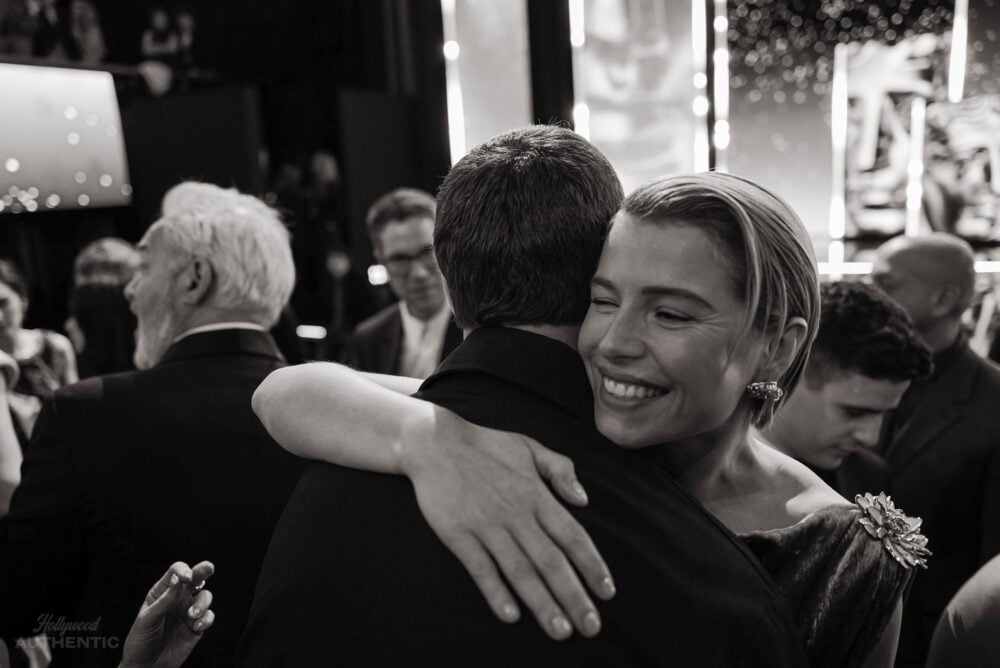
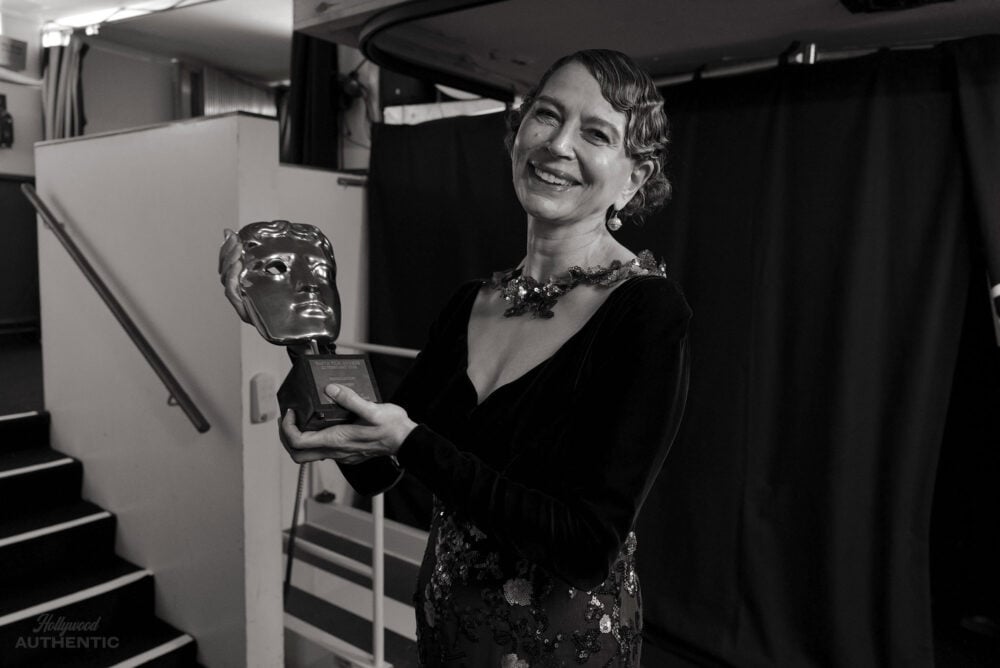
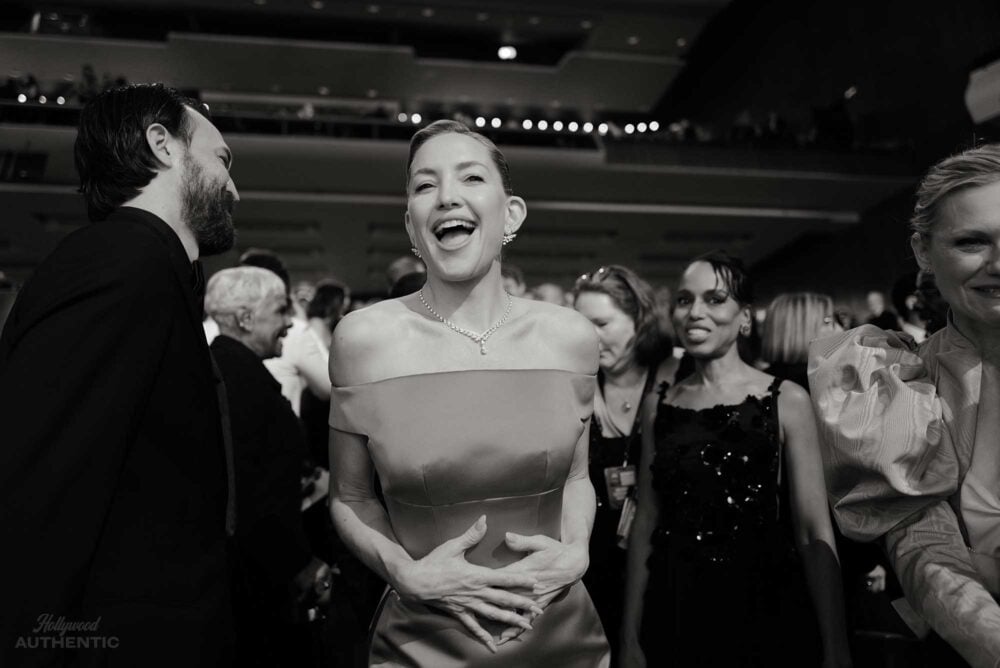
The evening rounded out with announcements for Best Actress – and frontrunner Jessie Buckley collecting gold for Hamnet – and Best Actor. Acknowledging her fellow nominees, Buckley (in custom Chanel) congratulated Emma Stone, Rose Byrne, Kate Hudson, Chase Infiniti and Renate Reinsve, saying; ‘You are all just radical and you are doing it for the naughty girls’. She dedicated the award to her baby daughter, promising ‘to continue to be disobedient so you can belong to a world in all your complete wildness as a young woman’.
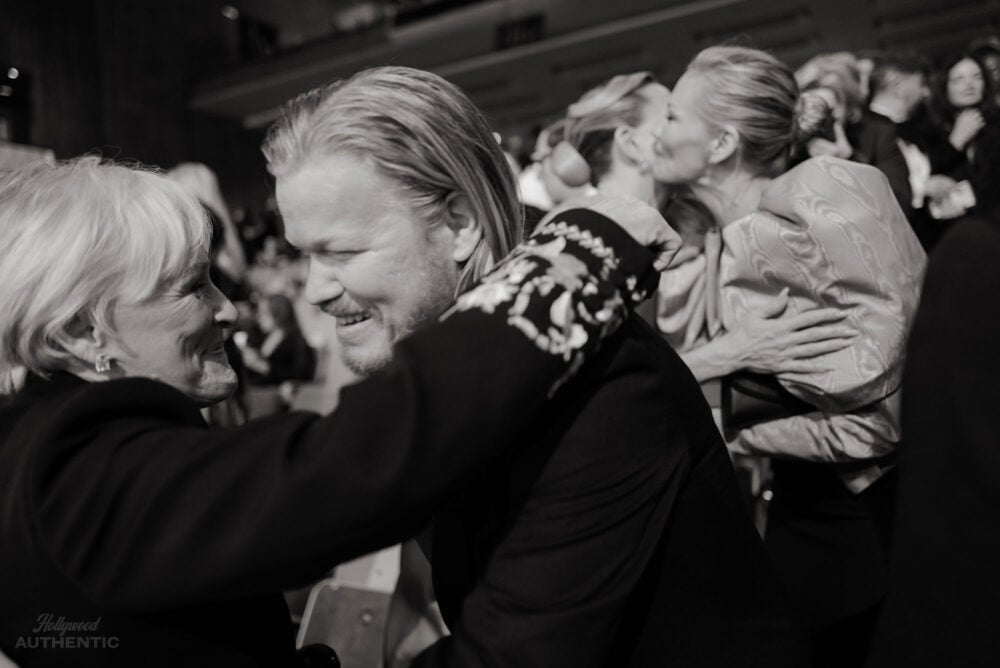
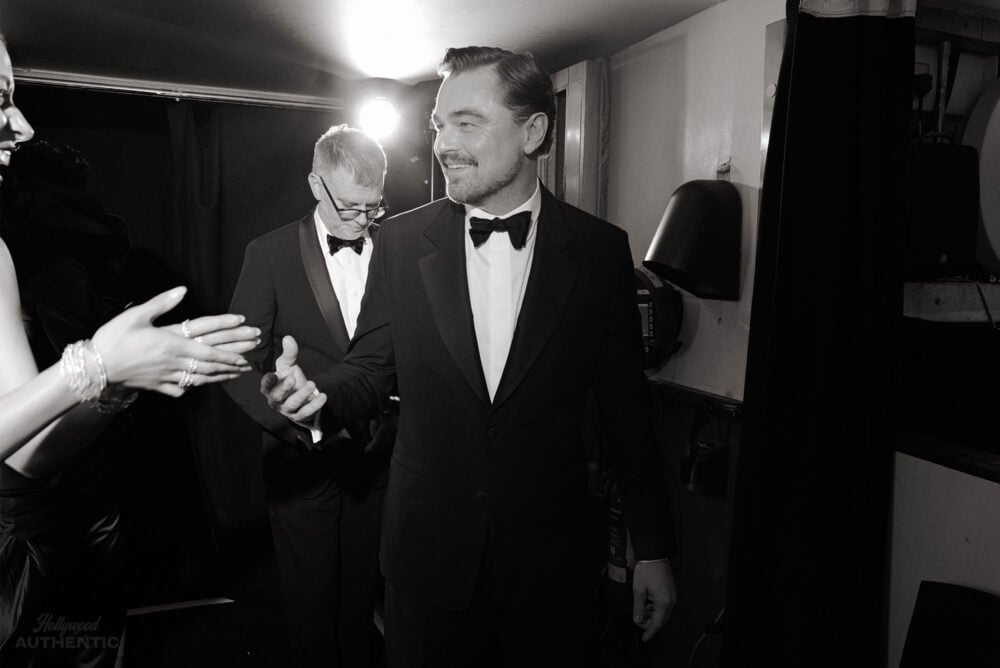
As One Battle After Another was named Best Film by Glenn Close (with Paul Thomas Anderson wondering where the bar was as he cradled his award), the thrilled team decompressed backstage. ‘Why does nobody want to get near you?’ DiCaprio teased his on-screen daughter Infiniti about her huge skirt, and she leaned forward to straighten his bow tie.
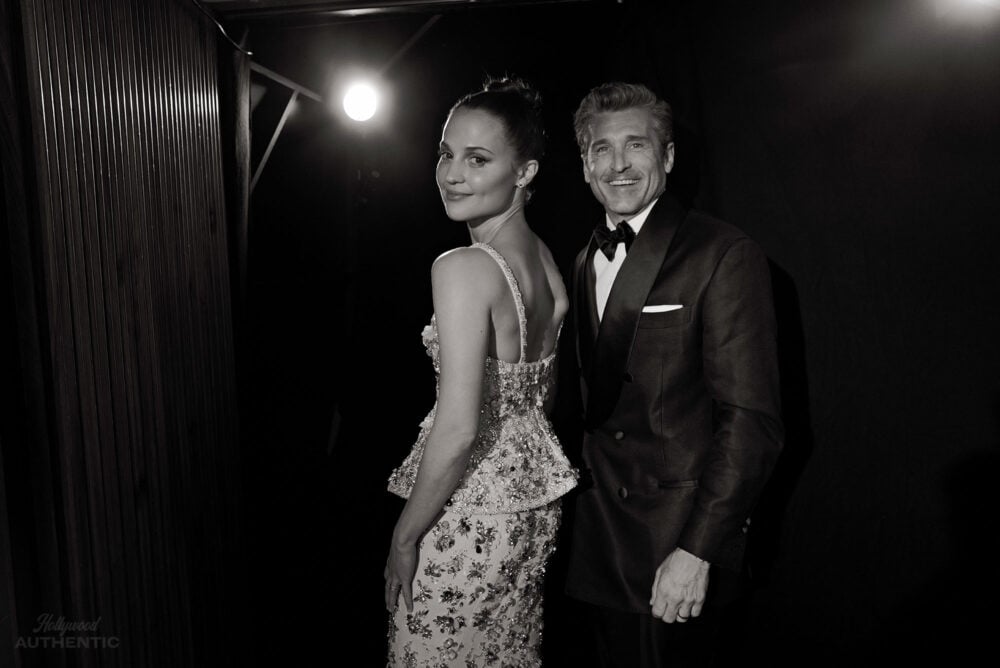
Dinner kicked off downstairs with truffle chicken and popcorn ice cream before revellers headed to afterparties; Warner Bros at Kettners, Disney at Soho House and Netflix at Twenty Two. There Patrick and Jillian Dempsey, with their daughter Talula, sipped cocktails while Joseph Quinn got the dance party started doing an impeccable Electric Slide to the DJ’s beats. In another part of the multi-level venue Machine Gun Kelly and Pete Davidson hung out, Regé-Jean Page chatted with Malachi Kirby, while Kerry Washington, Alicia Vikander, Noomi Rapace, Riz Ahmed, Tom Blyth, Aimee Lou Wood, Mark Strong and Mia McKenna-Bruce enjoyed the cocktails and full caviar bar.
WINNERS:
Best Film: One Battle After Another
Director: Paul Thomas Anderson, One Battle After Another
Leading Actor: Robert Aramayo, I Swear
Leading Actress: Jessie Buckley, Hamnet
Supporting Actress: Wunmi Mosaku, Sinners
Supporting Actor: Sean Penn, One Battle After Another
EE Rising Star Award: Robert Aramayo
Outstanding British Film: Hamnet
Outstanding Debut by a British Writer, Director or Producer: Akinola Davies Jr., My Father’s Shadow
Film Not in the English Language: Sentimental Value
Documentary: Mr. Nobody Against Putin
Animated Film: Zootopia 2
Adapted Screenplay: Paul Thomas Anderson, One Battle After Another
Original Screenplay: Ryan Coogler, Sinners
Original Score: Ludwig Göransson, Sinners
Costume Design: Kate Hawley, Frankenstein
Production Design: Tamara Deverell and Shane Vieau, Frankenstein
Special Visual Effects: Joe Letteri, Richard Baneham, Daniel Barrett and Eric Saindon, Avatar: Fire and Ash
Makeup & Hair: Jordan Samuel, Cliona Furey, Mike Hill and Megan Many, Frankenstein
Editing: Andy Jurgensen, One Battle After Another
Cinematography: Michael Bauman, One Battle After Another
Sound: Steve Speed, Nick Fry, James Evans, and Hugh Wan, F1
Casting: Lauren Evans, I Swear
British Short Animation: Two Black Boys in Paradise
British Short Film: This is Endometriosis
Photographs by Greg Williams
Words by Jane Crowther

